Hand-Picked Top-Read Stories
Why you should or shouldn’t get a phd, what is self-plagiarism and how can you avoid it, what’s the difference between a dissertation and a thesis, trending tags, best online ph.d. in statistics programs, table of contents hide, how long does it take to get a ph.d. in statistics online, flexibility, better study-life balance, wider choice of educational institutions, fewer expenses, no moving costs, easier access to faculty, admissions requirements for a ph.d. in statistics program, admission requirements, fully remote vs. hybrid, accreditation, northcentral university, grand canyon university, national university, is a ph.d. in statistics a good idea, can i get a ph.d. in statistics online, can i get a ph.d. in statistics and keep my day job.
In recent years, getting a Ph.D. in statistics online has turned into an attractive option for individuals seeking advanced education opportunities. The flexibility and convenience that online programs offer allow students to obtain a prestigious degree without leaving their homes.
Whether you are considering a career in academia, research, or industry, an online Ph.D. in Statistics can open doors to exciting opportunities. Let’s take a closer look at getting an online Ph.D. in statistics and choosing the best program for your needs.
The duration of an online Ph.D. program in statistics can vary depending on several factors, including:
- The program structure – some programs have accelerated full-study options while others accommodate part-time studies.
- The student’s prior qualifications – the more knowledge in the statistics field you have before you start the studies, the faster you are likely to complete the program,
- The place of study – different universities and colleges may require a different number of hours to complete the program.
On average, completing a Ph.D. in statistics online can take anywhere from 3 to 6 years. However, different programs may have different requirements and timelines.
Some programs offer accelerated options, while others provide an opportunity for part-time study. The latter allows students to customize their learning timelines based on their individual circumstances. To determine the specific duration of a program, make sure to review the requirements and curriculum of each program on your list of candidates.

Benefits of Getting a Ph.D. in Statistics Online
Many students worry that getting a Ph.D. in statistics online is less beneficial than doing it on campus. However, by the time you decide to get a Ph.D., you are likely to have a day job and multiple family responsibilities. That’s why an online program may seem like an excellent choice.
In reality, the quality of offline and online Ph.D. programs in the same university doesn’t differ at all. You get all the same learning opportunities online as you would offline.
One of the primary advantages of pursuing an online Ph.D. in Statistics is the flexibility it offers. Online programs allow students to study at their own pace and schedule. This can accommodate work and personal commitments.
This flexibility is particularly beneficial for individuals who wish to keep their jobs while pursuing their degrees or for those who have family responsibilities.
Obtaining a Ph.D. in Statistics online allows for a better study-life balance. Students can manage their studies alongside their professional and personal responsibilities. Meanwhile, they don’t have to worry about relocating or disrupting their current lifestyle. This balance can significantly reduce stress levels and enhance overall well-being.
By opting for an online Ph.D. program, students are not limited to educational institutions within their geographical location.
They have the freedom to choose from a wider range of reputable universities and colleges in their home countries or beyond the border. This opens up opportunities to learn from distinguished faculty members and engage with diverse cohorts of students anywhere in the world.
Choosing to pursue a Ph.D. in statistics online can also result in fewer expenses compared to on-campus programs. Online students can reduce commuting costs, housing expenses, and other associated fees.
If you decide to pursue a Ph.D. in statistics online, there is no need to move to another city or state. Students can pursue their degrees from the comfort of their own homes. This eliminates the need to relocate to a different city or state. This can be particularly advantageous for individuals who have established careers or family commitments.
Contrary to common misconceptions, online Ph.D. programs in statistics provide ample opportunities for students to interact with faculty members. Through virtual classrooms, video conferences, and email communication, students can easily connect with their professors, seek guidance, and engage in academic discussions.
This accessibility to faculty allows students to receive the necessary support and mentorship throughout their doctoral journey.
When applying for an online Ph.D. program in statistics, you need to monitor the admission requirements closely. These may vary slightly between institutions. Some of them may include:
- A master’s degree in statistics or a related field – most programs require applicants to have a relevant master’s degree to make sure they have a solid foundation in statistical theory and methodology. However, a Bachelor’s degree in mathematics can be acceptable for some universities.
- Transcripts – applicants must submit official transcripts from all previously attended institutions to demonstrate their academic performance and suitability for the program. The GPA should be at least 3.0. Some schools demand 3.4 and higher.
- Letters of recommendation – typically, applicants are required to provide letters of recommendation from academic or professional references who can confirm the student’s abilities and speak for their desire to continue the learning process.
- Statement of purpose – a well-written statement of purpose outlining the applicant’s research interests, career goals, and reasons for pursuing a Ph.D. in statistics.
- GRE scores – some programs may require applicants to demonstrate high GRE scores
- CV or resume – be ready to provide a well-written CV or resume
- English proficiency tests – if English isn’t your native language, the school may demand to see your TOEFL or IELTS scores.
If you can’t meet all admission requirements stated by the university, don’t give up. Many schools allow students to apply anyway. You would likely need to write an essay explaining why you can be an excellent asset to the program, and how the program can help you succeed.
How to Choose the Best Program for Getting a Ph.D. in Statistics Online
Choosing the right program for pursuing a Ph.D. in statistics online is crucial to ensure a successful and fulfilling academic journey. Here are a few things to pay attention to when choosing the best online Ph.D. in statistics program for your needs.
Before applying to any Ph.D. program in statistics, review the admission requirements thoroughly. Check that you meet the prerequisites, such as:
- Holding a bachelor’s or master’s degree in a related field
- Submitting official transcripts
- Obtaining letters of recommendation
- Writing a compelling statement of purpose
Pay attention to the additional requirements, such as GRE or TOEFL scores.
Consider whether you prefer a fully online program or a hybrid option that combines online coursework with some on-campus components.
A fully remote program offers for maximum flexibility, allowing you to study from anywhere at any time. Meanwhile, a hybrid program may provide opportunities for face-to-face interactions with faculty and peers during seminars, conferences, or research collaborations. Evaluate your personal preferences and commitments to determine which mode of learning suits you best.
Review the credit requirements of each program you are considering. Some programs may have a fixed curriculum with a specific number of credits, while others offer flexibility in choosing elective courses.
Check the number of credits required to complete the program and make sure it suits your purposes and timeframe. Additionally, consider the availability of part-time or accelerated options if you need to tailor your studies to fit your schedule.
To verify the quality and credibility of the program and the institution offering it, you need to check the school’s accreditation.
Look for programs that are accredited by recognized accrediting bodies that include:
- The Higher Learning Commission (HLC)
- Accrediting Commission for Senior Colleges and Universities (ACSCU),
- Distance Education Accrediting Commission (DEAC)
Some accreditation organizations can confirm the university’s quality of studies on the national level. Other organizations are regional.
Accreditation shows that the program meets certain educational standards and that your degree will be recognized by employers and other academic institutions.
When evaluating the accreditation status, also consider the reputation of the university or institution offering the program. Look for institutions with a strong track record in offering online education and a solid reputation in the field of statistics.
By carefully considering the admission requirements, program structure, and accreditation, you can make an informed decision about the best program for your Ph.D. in statistics online. Remember to prioritize your goals, preferences, and academic needs.
The Best Online Ph.D. in Statistics Programs
These universities offer robust online doctorate programs in statistics. By reviewing their requirements and credentials, you can make the best choice for your needs.
Located in Minneapolis, Minnesota, North Central University has a robust online Ph.D. in data science program with a specialization in Statistics. You will learn advanced statistical analysis and explore research methodologies.
The estimated time of completing the program is 40 months. This school has affordable tuition options that make high-quality programs accessible to a wide variety of students.
The school is accredited by the Western Association of Schools and Colleges.
Located in Phoenix, Arizona, this largest Christian University in the world has several high-quality online Ph.D. programs . One of them is in data analytics with the focus on statistics. To complete the program, you would need 60 credits.
During your studies at Grand Canyon, you’ll hone your data collection, preparation, and management skills. Several courses focus on analyzing quantitative data and producing research findings and results.
The school is accredited by the Higher Learning Commission.
Located in California (the school has campuses in different cities), National University allows students to complete their Ph.D. studies online. You can get a Ph.D. in Data Science with a focus on statistics.
The school is accredited by WASC Senior College and University Commission (WSCUC).
Frequently Asked Questions About Getting a Ph.D. in Statistics Online:
Yes, a Ph.D. in statistics offers excellent career prospects, as it is a highly sought-after qualification in various industries, including finance, healthcare, and technology.
Yes, there are numerous reputable universities and institutions offering online Ph.D. programs in statistics.
Pursuing a Ph.D. in statistics online provides the flexibility to balance academic commitments with a day job. This flexibility makes it possible for many individuals to continue working while studying.
The Takeaway
An online Ph.D. program in statistics offers flexibility, a better work-life balance, and a wider choice of educational institutions.
By carefully considering admission requirements, program structure, and accreditation, you can select the best program for your needs.
With a Ph.D. in statistics, you can take advantage of excellent career opportunities and make significant contributions to the field. You can take advantage of the above list to choose the program that aligns with your goals.

PHD in Economics, Associate Professor, Department of Business Process Management, Faculty of Market Technologies IOM
Find A Degree

The 11 Best Doctor of Statistics (Ph.D. Stat) Degree Programs: Salary and Information
Phd program rankings.
- Fully Funded PhDs in Education
- Doctor of Nursing Education
- Ph.D.: No Application Fees
- No-GRE Online Ph.D. in Psychology
- No-GRE Online Ph.D. Programs
- Fast Online Doctoral (Ph.D. and Ed.D.)
- The Most Affordable Online DBA
- Doctorate in Public Policy/Administration
- Doctor of ABA
- Transitional Doctor of Physical Therapy (DPT)
- Doctorate in Marketing
- ALL Ph.D. Degree Program Rankings
Career Guides
- Acupuncture and Oriental Medicine
- Aerospace Engineering
- Behavioral Health (D.B.H.)
- Chemical Engineering (PhD CE)
- Chemistry (D.Chem.)
- Clinical Nutrition (D.C.N.)
- Speech-Language Pathology (CScD)
- Criminology (D.Crim.)
- Economics (DEc)
- Health Science (D.H.S./D.H.Sci)
- Library Science (D.L.S.)
- Molecular Biology (Phd Mol Biol)
- Occupational Safety and Health (D.O.S.H.)
- Physics (Ph.D. Physics)
- ALL PhD Career Guides
Valuable Resources
- Best Laptops for Ph.D. Students
- Gift Ideas for Ph.D. Students
- Burnout & Chronic Stress
- The Key to Free Grad School
- Ph.D. Guide for International and Domestic Students
- Habits Of Highly Effective Leaders
- Online Doctorate Reputation
- Journals for Ph.D. Students
- Earning a PhD
- Write a Perfect Essay Like a PhD
- Master’s Degree As a Bridge To Ph.D.
- Self-Funding Your PhD
- Importance of Accreditation
- Online Ph.D. Support Groups
- Getting Accepted to an Online Ph.D.
- Common Fears of Ph.D. Students
- Habits of Successful People
- US Doctoral Degrees
- ALL VALUABLE RESOURCES
Frequently Asked Questions
- Why earn a Doctorate Degree?
- What are the Ph.D. Admission Requirements?
- How Much Does a Ph.D. Cost?
- How many years will it take for me to achieve my doctorate degree online?
- Do online doctorate degree programs require campus visits?
- Ph.D. vs. Doctorate
- ALL FREQUENTLY ASKED QUESTIONS
- Highest-Paying Doctoral Degrees
- Famous Ph.D. Theses In History
- Struggles Only a Ph.D. Student Would Understand
- Ph.D. Requiring Residencies
- The World’s Richest Doctors
- Academic Conferences
- Most Popular PhD Degrees
- ALL Ph.D. Highlights
Statistics involves the collection, analysis, and interpretation of data. Statisticians who are sought after in various disciplines are responsible for solving economic, political, ecological, medical, or social issues through significant data.
They may handle cancer research, analyze statistical data for the improvement of Internet search engines, and determine unemployment rates to aid the government in the allocation of resources.

Statisticians do valuable work because governments and industries rely heavily on statistics in their decision-making process.
Career opportunities also appear to be endless in this particular field. Because statistical modeling applies to various subject areas, statisticians are present in every industry.
An online Ph.D. in Statistics may open doors for career prospects if the interest lies in providing research specifically for the government or corporate decision-making process.
Students become adept at using the most updated, advanced strategies for the analysis of data in businesses, organizations, academics, and the government. They may also be trained for specialized areas in statistics, teach in the academy, or conduct research.
Ph.D. Stat students get sufficient training in applied and theoretical statistics. Students can choose to specialize based on their areas of interest and complete a dissertation.
This online program also has a goal of equipping graduates to either proceed with academic research in various universities and colleges or fill advanced research positions in government agencies and corporations.
Best Doctor of Statistics
University of pennsylvania wharton school.
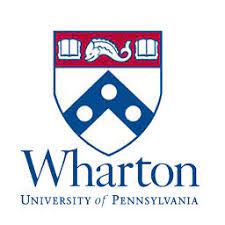
Program Standouts:
The Wharton School’s Doctor of Philosophy in Statistics is designed to provide students with a foundation and ability to engage in both applied problems and cutting-edge theory.
A wide variety of fields such as finance, marketing, and public policy as well as biostatistics within the Medical School and computer science within the Engineering School come together at Wharton to give Ph.D. students in statistics diverse opportunities for applying statistical knowledge.
Campus Location: Philadelphia, Pennsylvania
Accreditation: Middle States Commission on Higher Education
Course Sample:
- Bayesian Statistical Theory and Methods
- Probability Theory
- Stochastic Processes
- Statistical Methodology
Degree Outcomes: Graduates of the Statistics PhD at The Wharton School often take positions in academia, government, financial services, and bio-pharmaceutical industries.
LEARN MORE ABOUT THE WHARTON SCHOOL’S STATISTICS PHD PROGRAM
Harvard university business school.
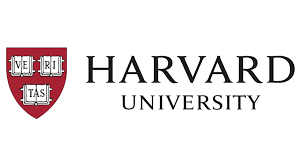
The Ph.D. in Statistics at Harvard University Business School is one of the top statistics degree programs in the country. Unique aspects of the program include integration and balanced training throughout teaching, research, and career development. Research is encouraged throughout the program in both theoretical and applied statistics.
Faculty members have been research leaders in a variety of topics including statistical inference, statistical computing, Monte-Carlo methods, causal inference, stochastic processes, and others.
All faculty members are also involved in personal research that applies to a wide variety of fields giving students rare opportunities for collaboration with some of the top statisticians in the country.
Campus Location: Cambridge, Massachusetts
Accreditation: New England Commission of Higher Education
- Astrostatistics
- Parametric Modeling
Degree Outcomes: Some unique courses offered in the Ph.D. in Statistics degree program at Harvard prepare students in a special way for life after graduate school.
These courses are geared toward teaching the basic skills necessary to teach statistics, as well as statistics communication and generic skills necessary for problem-solving abilities, making Harvard Ph.D. in Statistics graduates some of the best equipped in the country for successfully pursuing careers.
LEARN MORE ABOUT THE PHD IN STATISTICS AT HARVARD UNIVERSITY
University of rochester.
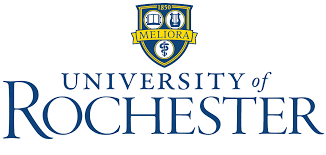
The Doctorate in Statistics at the University of Rochester applies “statistics” broadly across specializations in biostatistics, probability, statistical theory and analysis, and interdisciplinary areas. Coursework in the program has three concentrations:
- Probability,
- and Data Analysis.
Students beginning the program can expect to spend time in their first three years taking formal courses. The rest of their time in the program will be spent on reading and research.
Campus Location: Rochester, New York
Admissions Requirements:
- Online Admissions Application
- Statement of Purpose
- Copy of Transcripts
- 3 Letters of Recommendation
- Official GRE Scores
- English Language Test Scores for International Students
- Statistical Inference I
- Biostatistical Methods I
- Introduction to Statistical Computing
- Ethics in Research
Degree Outcomes: According to the University of Rochester PhD in Statistics website, “prior to completion of the PhD, most students have some publications underway, including some work related to their dissertation research, possibly other methodological work done in collaboration with other members of the faculty, and often some applied papers with scientific researchers in other fields.”
LEARN MORE ABOUT THE PHD IN STATISTICS AT THE UNIVERSITY OF ROCHESTER
University of north carolina – chapel hill.
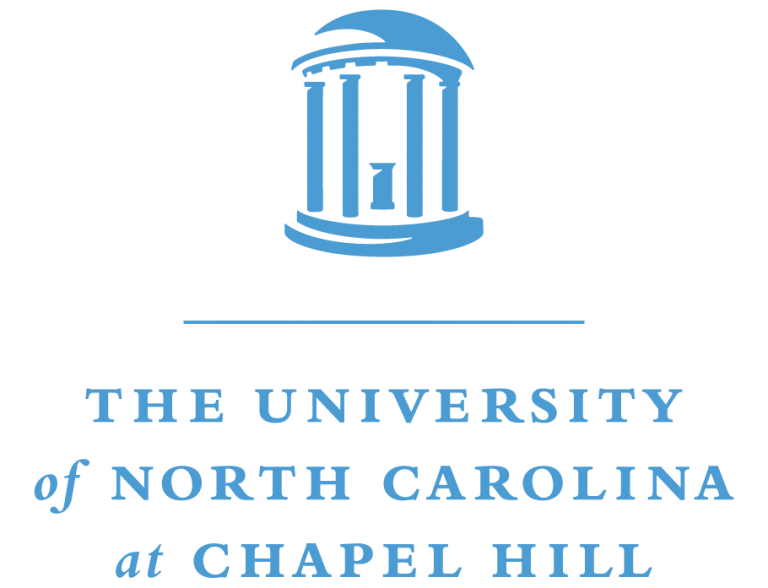
The Ph.D. Program in Statistics at the University of North Carolina – Chapel Hill grants students a broad base of information in applied statistics, theoretical statistics and probability, and other advanced topic courses.
The research that doctoral students pursue ranges from applied statistics to theoretical probability. Students are also involved in interdisciplinary research with faculty members and other students.
Campus Location: Chapel Hill, North Carolina
Accreditation: Southern Association of Schools and Colleges Commission on Colleges
- Application Fee
- Transcripts
- Letters of Recommendation
- Standardized Test Scores
- Community Standards Questions
- Supplemental Program Information
- Applied Statistics
- Theoretical Statistics
- Probability
Degree Outcomes: According to the University of North Carolina website, “the breadth and depth of the program has served graduates well in their subsequent careers in academia, industry and government.”
LEARN MORE ABOUT THE PHD IN STATISTICS AT THE UNIVERSITY OF NORTH CAROLINA – CHAPEL HILL
Stanford university.

The Ph.D. program in Statistics at Stanford University is one of the top statistics programs in the nation. The degree program consists of 135 units of study as well as a dissertation and oral examination.
First-year students participate in the core program and show acceptable performance in at least two core areas by the end of the first year. Breadth requirement capability by the end of the second and third year must be satisfied with the thesis proposal meeting successfully completed by the end of the third year.
A dissertation draft and passing grade on the university oral exam by the end of the fourth and fifth year will see the successful completion of the Ph.D. in Statistics.
Campus Location: Stanford, California
Accreditation: Western Association of Colleges and Schools Commission on Colleges
- Application Form
- Biostatistics
- Transcripts/GPA
- TOEFL Scores
- Theory of Statistics
- Theory of Probability
Degree Outcomes: Stanford’s Career Center is available to all graduates from Stanford University. Graduates of the PhD in Statistics can expect to successfully enter a career in Intelligence, Research and Biostatistics.
LEARN MORE ABOUT THE DOCTORAL DEGREE IN STATISTICS AT HARVARD UNIVERSITY
University of connecticut.

The Department of Statistics at the University of Connecticut offers one of the top Doctorate in Statistics degree programs. Founded in 1962, the Department is one of the major statistics departments in New England.
The core faculty of 20 professors teach and research topics that cover nearly all major statistical specializations. The department has also received national and international recognition in graduate research and education.
Campus Location: Mansfield, Connecticut
Accreditation: The University of Connecticut is accredited by the New England Commission of Higher Education, 3 Burlington Woods Drive, Suite 100, Burlington, MA 01803-4514
- Admissions Application
- Mathematical Statistics
- Design of Experiments
Degree Outcomes: Graduates with a Doctoral degree in Statistics from the University of Connecticut have found “excellent positions in academics, government, and industry.”
LEARN MORE ABOUT THE DOCTOR OF STATISTICS DEGREE AT THE UNIVERSITY OF CONNECTICUT
University of washington.
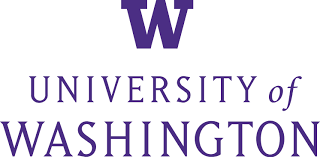
The University of Washington’s Department of Statistics has a high reputation for excellence. Established in 1979, the Department includes a broad area of study specialties and dozens of topics including both the theory and methodology of statistics.
The University of Washington Statistics Department also has close contact and joint research interaction with many local departments and companies.
Campus Location: Tacoma, WA
Accreditation: Northwest Commission on Colleges and Universities
- Resume/Vitae
- Personal Statement
- Optional Official GRE Scores
- Statistical Methods for Survival Data
- Data Analysis and Reporting
- Advanced Theory of Statistical Inference
Degree Outcomes: Graduates with a Doctoral Degree in Statistics from the University of Washington show a high level of satisfaction not only with their experience at UW but with the ease of entering the Statistics Job Market.
LEARN MORE ABOUT THE DOCTORAL DEGREE IN STATISTICS AT THE UNIVERSITY OF WASHINGTON
Cornell university.

Studying in the Ph.D. in Statistics degree program at Cornell University grants students a diverse set of skills. These include the ability to collaborate effectively with researchers, as well as formulate, compute, and implement novel statistical models and methods.
Cornell’s Ph.D. alumni, according to the school’s website, “have gone on to high-profile positions in all of academia, industry, and government.”
Campus Location: Ithaca, NY
- College Transcripts
- Two Letters of Recommendation
- Strong Performance in Mathematics
- Linear Models
- Asymptomatic Statistics
Degree Outcomes: The Ph.D. in Statistics at Cornell University is designed to prepare students for careers in teaching and research in industry or government or at the University level.
LEARN MORE ABOUT THE PHD IN STATISTICS AND DATA SCIENCE AT CORNELL UNIVERSITY
Columbia university.
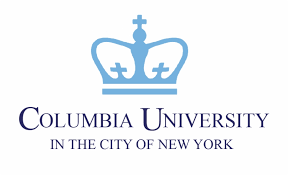
With a history of over 250 years of academic excellence and 87 Nobel Prize Winners, graduate students in the Statistics Department can expect to acquire a degree of high academic standing.
The Ph.D. in Statistics at Columbia is designed to train students in theoretical statistics, applied statistics, and probability. The program is also geared toward collaborative interdisciplinary research.
Campus Location: New York, NY
- Background in linear algebra and real analysis
- Coursework in statistics and probability
- Familiarity with computing and programming is desirable
- Quantitative training
- Background and experience in other scientific disciplines
- Completed Application
- Statistical Computing
- Probability Theory I-III
Degree Outcomes: According to the Columbia University Graduate Student Handbook, “The Ph.D. program prepares students for research careers in probability and statistics in both academia and industry.”
LEARN MORE ABOUT THE PHD IN STATISTICS AT COLUMBIA UNIVERSITY
University of michigan.
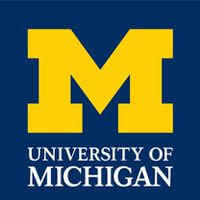
The Ph.D. in Statistics at the University of Michigan is diverse and flexible. The program allows students to pursue a wide range of studies from interdisciplinary research to statistical methodology and probability theory.
Students in the Ph.D. program begin the program by taking foundational courses, transition into research, and culminate their studies with the most important component of the program – the dissertation.
Campus Location: Ann Arbor, Michigan
Accreditation: Higher Learning Commission
- Recommender Names and Email Addresses
- Resume or CV
5 Core PHD Study Areas:
- Statistical Theory
Degree Outcomes: The flexibility and diversity of the study focus areas in the PhD program at the University of Michigan grant graduates the opportunity to seek specialized career options that correspond to their interests.
LEARN MORE ABOUT THE PHD IN STATISTICS AT THE UNIVERSITY OF MICHIGAN
Iowa state university.

Program Standouts: The Ph.D. program in Statistics at Iowa State University includes four courses in one of four concentration areas:
- biostatistics,
- probability/mathematical statistics,
- data science,
- or actuarial science/financial mathematics.
Coursework in seminars or other departments can include specializations such as using electronic digital computing equipment or learning non-English language skills.
Campus Location: Ames, Iowa
- Online Application
- Records/Transcripts
- Statistical Consulting
- Reading in Statistics
- Statistical Inference
Degree Outcomes: As part of a top Statistics Program in the country, Iowa State’s Ph.D. in Statistics will award graduates the opportunity to successfully pursue a degree in their specialized area of statistics, either in research or education.
LEARN MORE ABOUT THE PH.D. IN STATISTICS AT IOWA STATE UNIVERSITY
Why should i consider taking an online ph.d. in statistics ( ph.d. stat ) program.

There are numerous reasons to earn an online Ph.D. Stat degree. First and foremost, it can aid the student in career advancement. According to the U.S. Bureau of Labor Statistics (BLS), there are excellent opportunities for career advancement for people with master’s or doctoral degrees.
An online Ph.D. may also lead to greater freedom, as statisticians with a post-graduate degree can design their work independently. A doctoral degree in Statistics is considered an exciting scholastic challenge that allows students to take on various research opportunities while connecting with fellow experts. It is also ideal for statisticians seeking to expand their knowledge through research and teaching fellowships continuously.
There may be numerous challenges to take into consideration when earning a Ph.D. Stat degrees, especially with work or family obligations, get in the way of pursuing a post-graduate degree.
The entire program takes about four to five years to complete. While the prospect offers a tremendous opportunity, Ph.D. in Statistics degrees that are earned online are quite uncommon.
What are the requirements for admission to an online Ph.D. Statistics program ?
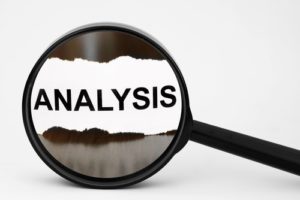
The prerequisites for this particular degree program vary based on the academic institution. Commonly, Ph.D. Stat programs require many semesters of linear algebra, calculus, and mathematical statistics classes. Many of the courses also expose students to computer programming and related subjects.
In general, students pursuing an online Ph.D. Statistics degree first needs to earn a master’s degree in the fields of mathematics or computer science. Students who lack the requirements before entering this online Ph.D. program can take advantage of the remedial prerequisite courses offered every summer.
However, some remedial courses in online Ph.D. Stat programs require a high GRE score. Students must ace comprehensive examinations involving methods and theories relating to the discipline. Other programs require students to have earned ample experience in the use of statistical packages such as SPSS or SAS before being accepted into graduate school.
Application requirements may differ from one program to another beyond the typical undergraduate and graduate transcripts. Usually, doctorate candidates for Statistics need to meet a minimum GPA of at least 3.0 and should have earned a bachelor’s degree in mathematics, statistics, or any related field.
What courses can be taken in an online Ph.D. Stat program?
An online Ph.D. Stat’s course curriculum does not wander far from that of a traditional, on-campus program. The types of courses to be completed, however, depend on the student’s area of specialization and may differ based on the graduate school and the program structure.
There is typically a core curriculum with additional courses and examinations. A consulting seminar or project may also be required along with a dissertation or, in some cases, a comprehensive exam.

The coursework usually includes the following:
- Statistical Analysis
- Asymptotics
- Bootstrapping
- Decision theory
- Multivariate analysis
- Sequential analysis
- Time series
- Stochastic processes and models
- Bayesian statistics
- Statistical consulting
- Probability theory
- Theoretical statistics
- Mathematical statistics
- Applied statistics
- Mathematics of finance
- Statistical Methods in Bioinformatics
- Applied Algebra
- Statistical Genetics
What are the career pathways, employment, and salary rates for a Ph.D. Stat degree holder?

The U.S. Bureau of Labor Statistics (BLS) reports that, with a 30% increase between 2022 to 2032, the job growth rate for statisticians is higher than the median rate for all other occupations.
Doctorate holders with experience in fields such as computer science, engineering, or biology are most likely to land advanced work positions. Government agencies, commercial businesses, and pharmaceutical companies all have a high demand for statisticians.
The federal government, meanwhile, employed approximately 15% of statisticians in the United States in 2014 and at least 20% in 2010. Other top hiring sectors include scientific and development services at 16%, colleges, universities, and professional schools at 11%, the state government at 11%, and insurance carriers at 7%. In May 2022, it was recorded that the median annual wage for statisticians was $112,110 .
What schools offer a Ph.D. Stat program?

Ph.D. Stat programs are rarely offered as a fully 100% online degree. It is, however, delivered in hybrid format by the country’s top universities, including:
- University of Pennsylvania Wharton,
- Harvard University Business School ,
- University of Rochester ,
- University of North Carolina-Chapel Hill,
- Stanford University .
The following, on the other hand, are some of the best schools that offer Ph.D. in Statistics programs in on-campus or brick-and-mortar format only:
- University of Connecticut ,
- University of Washington ,
- Cornell University ,
- Columbia University ,
- University of Michigan,
- Iowa State University .
Earning a Ph.D. Stat online may save you time and allow greater access to significant resources. Along with the increased growth of data collection, the growing importance of cybersecurity, and the rising need for new software, a significant number of well-experienced statisticians has become more in demand.
Is earning a Doctor of Statistics degree worth my time and expense?
The answer to this question will depend on your circumstances and goals. A Doctor of Statistics degree is a highly specialized degree that can be beneficial for those looking to advance their career in the field of statistics.
It can also provide a valuable foundation for those pursuing a career in data science or research. Ultimately, it is up to you to decide if the time and expense associated with earning a Doctor of Statistics degree are worth it for your own circumstances.

- Youth Program
- Wharton Online
Statistics and Data Science
Wharton’s phd program in statistics and data science provides the foundational education that allows students to engage both cutting-edge theory and applied problems. these include theoretical research in mathematical statistics as well as interdisciplinary research in the social sciences, biology and computer science..
Wharton’s PhD program in Statistics and Data Science provides the foundational education that allows students to engage both cutting-edge theory and applied problems. These include problems from a wide variety of fields within Wharton, such as finance, marketing, and public policy, as well as fields across the rest of the University such as biostatistics within the Medical School and computer science within the Engineering School.
Major areas of departmental research include:
- analysis of observational studies;
- Bayesian inference, bioinformatics;
- decision theory;
- game theory;
- high dimensional inference;
- information theory;
- machine learning;
- model selection;
- nonparametric function estimation; and
- time series analysis.
Students typically have a strong undergraduate background in mathematics. Knowledge of linear algebra and advanced calculus is required, and experience with real analysis is helpful. Although some exposure to undergraduate probability and statistics is expected, skills in mathematics and computer science are more important. Graduates of the department typically take positions in academia, government, financial services, and bio-pharmaceutical industries.
For information on courses and sample plan of study, please visit the University Graduate Catalog .
Get the Details.
Visit the Statistics and Data Science website for details on program requirements and courses. Read faculty and student research and bios to see what you can do with a Statistics PhD.
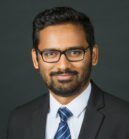
Statistics and Data Science Doctoral Coordinator
Dr. Bhaswar Bhattacharya Associate Professor of Statistics and Data Science Associate Professor of Mathematics (secondary appointment) Email: [email protected] Phone: 215-573-0535

Graduate Student Handbook (Coming Soon: New Graduate Student Handbook)
Phd program overview.
The PhD program prepares students for research careers in probability and statistics in academia and industry. Students admitted to the PhD program earn the MA and MPhil along the way. The first year of the program is spent on foundational courses in theoretical statistics, applied statistics, and probability. In the following years, students take advanced topics courses. Research toward the dissertation typically begins in the second year. Students also have opportunities to take part in a wide variety of projects involving applied probability or applications of statistics.
Students are expected to register continuously until they distribute and successfully defend their dissertation. Our core required and elective curricula in Statistics, Probability, and Machine Learning aim to provide our doctoral students with advanced learning that is both broad and focused. We expect our students to make Satisfactory Academic Progress in their advanced learning and research training by meeting the following program milestones through courseworks, independent research, and dissertation research:
By the end of year 1: passing the qualifying exams;
By the end of year 2: fulfilling all course requirements for the MA degree and finding a dissertation advisor;
By the end of year 3: passing the oral exam (dissertation prospectus) and fulfilling all requirements for the MPhil degree
By the end of year 5: distributing and defending the dissertation.
We believe in the Professional Development value of active participation in intellectual exchange and pedagogical practices for future statistical faculty and researchers. Students are required to serve as teaching assistants and present research during their training. In addition, each student is expected to attend seminars regularly and participate in Statistical Practicum activities before graduation.
We provide in the following sections a comprehensive collection of the PhD program requirements and milestones. Also included are policies that outline how these requirements will be enforced with ample flexibility. Questions on these requirements should be directed to ADAA Cindy Meekins at [email protected] and the DGS, Professor John Cunningham at [email protected] .
Applications for Admission
- Our students receive very solid training in all aspects of modern statistics. See Graduate Student Handbook for more information.
- Our students receive Fellowship and full financial support for the entire duration of their PhD. See more details here .
- Our students receive job offers from top academic and non-academic institutions .
- Our students can work with world-class faculty members from Statistics Department or the Data Science Institute .
- Our students have access to high-speed computer clusters for their ambitious, computationally demanding research.
- Our students benefit from a wide range of seminars, workshops, and Boot Camps organized by our department and the data science institute .
- Suggested Prerequisites: A student admitted to the PhD program normally has a background in linear algebra and real analysis, and has taken a few courses in statistics, probability, and programming. Students who are quantitatively trained or have substantial background/experience in other scientific disciplines are also encouraged to apply for admission.
- GRE requirement: Waived for Fall 2024.
- Language requirement: The English Proficiency Test requirement (TOEFL) is a Provost's requirement that cannot be waived.
- The Columbia GSAS minimum requirements for TOEFL and IELTS are: 100 (IBT), 600 (PBT) TOEFL, or 7.5 IELTS. To see if this requirement can be waived for you, please check the frequently asked questions below.
- Deadline: Jan 8, 2024 .
- Application process: Please apply by completing the Application for Admission to the Columbia University Graduate School of Arts & Sciences .
- Timeline: P.hD students begin the program in September only. Admissions decisions are made in mid-March of each year for the Fall semester.
Frequently Asked Questions
- What is the application deadline? What is the deadline for financial aid? Our application deadline is January 5, 2024 .
- Can I meet with you in person or talk to you on the phone? Unfortunately given the high number of applications we receive, we are unable to meet or speak with our applicants.
- What are the required application materials? Specific admission requirements for our programs can be found here .
- Due to financial hardship, I cannot pay the application fee, can I still apply to your program? Yes. Many of our prospective students are eligible for fee waivers. The Graduate School of Arts and Sciences offers a variety of application fee waivers . If you have further questions regarding the waiver please contact gsas-admissions@ columbia.edu .
- How many students do you admit each year? It varies year to year. We finalize our numbers between December - early February.
- What is the distribution of students currently enrolled in your program? (their background, GPA, standard tests, etc)? Unfortunately, we are unable to share this information.
- How many accepted students receive financial aid? All students in the PhD program receive, for up to five years, a funding package consisting of tuition, fees, and a stipend. These fellowships are awarded in recognition of academic achievement and in expectation of scholarly success; they are contingent upon the student remaining in good academic standing. Summer support, while not guaranteed, is generally provided. Teaching and research experience are considered important aspects of the training of graduate students. Thus, graduate fellowships include some teaching and research apprenticeship. PhD students are given funds to purchase a laptop PC, and additional computing resources are supplied for research projects as necessary. The Department also subsidizes travel expenses for up to two scientific meetings and/or conferences per year for those students selected to present. Additional matching funds from the Graduate School Arts and Sciences are available to students who have passed the oral qualifying exam.
- Can I contact the department with specific scores and get feedback on my competitiveness for the program? We receive more than 450 applications a year and there are many students in our applicant pool who are qualified for our program. However, we can only admit a few top students. Before seeing the entire applicant pool, we cannot comment on admission probabilities.
- What is the minimum GPA for admissions? While we don’t have a GPA threshold, we will carefully review applicants’ transcripts and grades obtained in individual courses.
- Is there a minimum GRE requirement? No. The general GRE exam is waived for the Fall 2024 admissions cycle.
- Can I upload a copy of my GRE score to the application? Yes, but make sure you arrange for ETS to send the official score to the Graduate School of Arts and Sciences.
- Is the GRE math subject exam required? No, we do not require the GRE math subject exam.
- What is the minimum TOEFL or IELTS requirement? The Columbia Graduate School of Arts and Sciences minimum requirements for TOEFL and IELTS are: 100 (IBT), 600 (PBT) TOEFL, or 7.5 IELTS
- I took the TOEFL and IELTS more than two years ago; is my score valid? Scores more than two years old are not accepted. Applicants are strongly urged to make arrangements to take these examinations early in the fall and before completing their application.
- I am an international student and earned a master’s degree from a US university. Can I obtain a TOEFL or IELTS waiver? You may only request a waiver of the English proficiency requirement from the Graduate School of Arts and Sciences by submitting the English Proficiency Waiver Request form and if you meet any of the criteria described here . If you have further questions regarding the waiver please contact gsas-admissions@ columbia.edu .
- My transcript is not in English. What should I do? You have to submit a notarized translated copy along with the original transcript.
Can I apply to more than one PhD program? You may not submit more than one PhD application to the Graduate School of Arts and Sciences. However, you may elect to have your application reviewed by a second program or department within the Graduate School of Arts and Sciences if you are not offered admission by your first-choice program. Please see the application instructions for a more detailed explanation of this policy and the various restrictions that apply to a second choice. You may apply concurrently to a program housed at the Graduate School of Arts and Sciences and to programs housed at other divisions of the University. However, since the Graduate School of Arts and Sciences does not share application materials with other divisions, you must complete the application requirements for each school.
How do I apply to a dual- or joint-degree program? The Graduate School of Arts and Sciences refers to these programs as dual-degree programs. Applicants must complete the application requirements for both schools. Application materials are not shared between schools. Students can only apply to an established dual-degree program and may not create their own.
With the sole exception of approved dual-degree programs , students may not pursue a degree in more than one Columbia program concurrently, and may not be registered in more than one degree program at any institution in the same semester. Enrollment in another degree program at Columbia or elsewhere while enrolled in a Graduate School of Arts and Sciences master's or doctoral program is strictly prohibited by the Graduate School. Violation of this policy will lead to the rescission of an offer of admission, or termination for a current student.
When will I receive a decision on my application? Notification of decisions for all PhD applicants generally takes place by the end of March.
Notification of MA decisions varies by department and application deadlines. Some MA decisions are sent out in early spring; others may be released as late as mid-August.
Can I apply to both MA Statistics and PhD statistics simultaneously? For any given entry term, applicants may elect to apply to up to two programs—either one PhD program and one MA program, or two MA programs—by submitting a single (combined) application to the Graduate School of Arts and Sciences. Applicants who attempt to submit more than one Graduate School of Arts and Sciences application for the same entry term will be required to withdraw one of the applications.
The Graduate School of Arts and Sciences permits applicants to be reviewed by a second program if they do not receive an offer of admission from their first-choice program, with the following restrictions:
- This option is only available for fall-term applicants.
- Applicants will be able to view and opt for a second choice (if applicable) after selecting their first choice. Applicants should not submit a second application. (Note: Selecting a second choice will not affect the consideration of your application by your first choice.)
- Applicants must upload a separate Statement of Purpose and submit any additional supporting materials required by the second program. Transcripts, letters, and test scores should only be submitted once.
- An application will be forwarded to the second-choice program only after the first-choice program has completed its review and rendered its decision. An application file will not be reviewed concurrently by both programs.
- Programs may stop considering second-choice applications at any time during the season; Graduate School of Arts and Sciences cannot guarantee that your application will receive a second review.
- What is the mailing address for your PhD admission office? Students are encouraged to apply online . Please note: Materials should not be mailed to the Graduate School of Arts and Sciences unless specifically requested by the Office of Admissions. Unofficial transcripts and other supplemental application materials should be uploaded through the online application system. Graduate School of Arts and Sciences Office of Admissions Columbia University 107 Low Library, MC 4303 535 West 116th Street New York, NY 10027
- How many years does it take to pursue a PhD degree in your program? Our students usually graduate in 4‐6 years.
- Can the PhD be pursued part-time? No, all of our students are full-time students. We do not offer a part-time option.
- One of the requirements is to have knowledge of linear algebra (through the level of MATH V2020 at Columbia) and advanced calculus (through the level of MATH V1201). I studied these topics; how do I know if I meet the knowledge content requirement? We interview our top candidates and based on the information on your transcripts and your grades, if we are not sure about what you covered in your courses we will ask you during the interview.
- Can I contact faculty members to learn more about their research and hopefully gain their support? Yes, you are more than welcome to contact faculty members and discuss your research interests with them. However, please note that all the applications are processed by a central admission committee, and individual faculty members cannot and will not guarantee admission to our program.
- How do I find out which professors are taking on new students to mentor this year? Applications are evaluated through a central admissions committee. Openings in individual faculty groups are not considered during the admissions process. Therefore, we suggest contacting the faculty members you would like to work with and asking if they are planning to take on new students.
For more information please contact us at [email protected] .

For more information please contact us at [email protected]
Quick Links
- Undergraduate Programs
- M.A. Statistics Programs
- M.A. in Mathematical Finance
- M.S. in Actuarial Science
- M.A. in Quantitative Methods in the Social Sciences
- M.S. in Data Science
- PhD Program
- BA/MA Program
- Department Directory
- Faculty Positions
- Founder’s Postdoctoral Fellowship Positions
- Staff Hiring
- Joint Postdoc with Data Science Institute
- Department News
- Department Calendar
- Research Computing
Upcoming Events
| DEPARTMENT OF STATISTICS Columbia University Room 1005 SSW, MC 4690 1255 Amsterdam Avenue New York, NY 10027 Phone: 212.851.2132 Fax: 212.851.2164 |
PhD in Statistics
Program description.
The Ph.D. program in statistics prepares students for a career pursuing research in either academia or industry. The program provides rigorous classroom training in the theory, methodology, and application of statistics, and provides the opportunity to work with faculty on advanced research topics over a wide range of theory and application areas. To enter, students need a bachelor’s degree in mathematics, statistics, or a closely related discipline. Students graduating with a PhD in Statistics are expected to:
- Demonstrate an understanding the core principles of Probability Theory, Estimation Theory, and Statistical Methods.
- Demonstrate the ability to conduct original research in statistics.
- Demonstrate the ability to present research-level statistics in a formal lecture
Requirements for the Ph.D. (Statistics Track)
Course Work A Ph.D. student in our department must complete sixteen courses for the Ph.D. At most, four of these courses may be transferred from another institution. If the Ph.D. student is admitted to the program at the post-Master’s level, then eight courses are usually required.
Qualifying Examinations First, all Ph.D. students in the statistics track must take the following two-semester sequences: MA779 and MA780 (Probability Theory I and II), MA781 (Estimation Theory) and MA782 (Hypothesis Testing), and MA750 and MA751 (Advanced Statistical Methods I and II). Then, to qualify a student to begin work on a PhD dissertation, they must pass two of the following three exams at the PhD level: probability, mathematical statistics, and applied statistics. The probability and mathematical statistics exams are offered every September and the applied statistics exam is offered every April.
- PhD Exam in Probability: This exam covers the material covered in MA779 and MA780 (Probability Theory I and II).
- PhD Exam in Mathematical Statistics: This exam covers material covered in MA781 (Estimation Theory) and MA782 (Hypothesis Testing).
- PhD Exam in Applied Statistics: This exam covers the same material as the M.A. Applied exam and is offered at the same time, except that in order to pass it at the PhD level a student must correctly solve all four problems.
Note: Students concentrating in probability may choose to do so either through the statistics track or through the mathematics track. If a student wishes to do so through the mathematics track, the course and exam requirements are different. Details are available here .
Dissertation The dissertation is the major requirement for a Ph.D. student. After the student has completed all course work, the Director of Graduate Studies, in consultation with the student, selects a three-member dissertation committee. One member of this committee is designated by the Director of Graduate Studies as the Major Advisor for the student. Once completed, the dissertation must be defended in an oral examination conducted by at least five members of the Department.
The Dissertation and Final Oral Examination follows the GRS General Requirements for the Doctor of Philosophy Degree .
Satisfactory Progress Toward the Degree Upon entering the graduate program, each student should consult the Director of Graduate Studies (Prof. David Rohrlich) and the Associate Director of the Program in Statistics (Prof. Konstantinos Spiliopoulos). Initially, the Associate Director of the Program in Statistics will serve as the default advisor to the student. Eventually the student’s advisor will be determined in conjunction with their dissertation research. The Associate Director of the Program in Statistics, who will be able to guide the student through the course selection and possible directed study, should be consulted often, as should the Director of Graduate Studies. Indeed, the Department considers it important that each student progress in a timely manner toward the degree. Each M.A. student must have completed the examination by the end of their second year in the program, while a Ph.D. student must have completed the qualifying examination by the third year. Students entering the Ph.D. program with an M.A. degree must have completed the qualifying examination by October of the second year. Failure to meet these deadlines may jeopardize financial aid. Some flexibility in the deadlines is possible upon petition to the graduate committee in cases of inadequate preparation.
Students enrolled in the Graduate School of Arts & Sciences (GRS) are expected to adhere to a number of policies at the university, college, and departmental levels. View the policies on the Academic Bulletin and GRS website .
Residency Post-BA students must complete all of the requirements for a Ph.D. within seven years of enrolling in the program and post-MA students must complete all requirements within five years. This total time limit is set by the Graduate School. Students needing extra time must petition the Graduate School. Also, financial aid is not guaranteed after the student’s fifth year in the program.
Financial Aid
As with all Ph.D. students in the Department of Mathematics and Statistics, the main source of financial aid for graduate students studying statistics is a Teaching Fellowship. These awards carry a stipend as well as tuition remission for six courses per year. Teaching Fellows are required to assist a faculty member who is teaching a course, usually a large lecture section of an introductory statistics course. Generally, the Teaching Fellow is responsible for conducting a number of discussion sections consisting of approximately twenty-five students each, as well as for holding office hours and assisting with grading. The Teaching Fellowship usually entails about twenty hours of work per week. For that reason, Teaching Fellows enroll in at most three courses per semester. A Teaching Fellow Seminar is conducted to help new Teaching Fellows develop as instructors and to promote the continuing development of experienced Teaching Fellows.
Other sources of financial aid include University Fellowships and Research Assistantships. The University Fellowships are one-year awards for outstanding students and are service-free. They carry stipends plus full tuition remission. Students do not need to apply for these fellowships. Research Assistantships are linked to research done with individual faculty, and are paid for through those faculty members’ grants. As a result, except on rare occasions, Research Assistantships typically are awarded to students in their second year and beyond, after student and faculty have had sufficient time to determine mutuality of their research interests.
Regular reviews of the performance of Teaching Fellows and Research Assistants in their duties as well as their course work are conducted by members of the Department’s Graduate Committee.
Ph.D. Program Milestones
The department considers it essential that each student progress in a timely manner toward completion of the degree. The following are the deadlines for achieving the milestones described in the Degree Requirements and constitute the basis for evaluating satisfactory progress towards the Ph.D. These deadlines are not to be construed as expected times to complete the various milestones, but rather as upper bounds. In other words, a student in good standing expecting to complete the degree within the five years of guaranteed funding will meet these milestones by the much e arlier target dates indicated below. Failure to achieve these milestones in a timely manner may affect financial aid.
- Target: April of Year 1
- Deadline: April of Year 2
- Target: Spring of Year 2 post-BA/Spring of Year 1 post-MA
- Deadline: End of Year 3 post-BA/Fall of Year 2 post-MA
- Target: Spring of Year 2
- Deadline: End of Year 3
- Target: Spring of Year 2 or Fall of Year 3 post-BA/October of Year 2 post-MA
- Deadline: End of Year 3 post-BA/October of Year 2 post-MA
- Target: end of Year 3
- Deadline: End of Year 4
- Target: End of Year 5
- Deadline: End of Year 6
If you have any questions regarding our PhD program in Statistics, please reach out to us at [email protected]
- Faculty/Staff
- MyMichiganTech
- Safety Data Sheets
- Website Settings
- Global Campus
- Applied Statistics (MS)
Online Master of Science in Applied Statistics (MS)

Solve Real-World Problems With Applied Statistics.
Applied statistics is the implementation of statistical methods, techniques, and theories to real-world problems and situations in science, engineering, business, medicine, social sciences, and more. The discipline involves collecting, summarizing, analyzing, interpreting, and presenting data to make informed decisions, solve problems, and answer questions.
Applied statisticians also use advanced techniques, such as machine learning algorithms, to extract insights and patterns from large datasets. Experts in applied statistics work in several settings: research institutions, the government, business and finance, universities, healthcare systems, and more.
With Michigan Tech's Online MS in Applied Statistics , you, too, can build the specialized skills to meet the growing demand for statistics and data professionals. MTU's distance-learning, research-based MS combines tested techniques with emerging technologies while maintaining the high standards of a Michigan Tech graduate education.
- What is Applied Statistics?
Take Foundational, Rigorous Applied Statistics Courses.
The online MSAS curriculum is based on direct industry feedback. Through in-depth coursework, you will learn how to merge theory and application, enabling you to graduate ready to address the data-driven challenges that public, private, and non-governmental institutions face.
You'll develop expertise in several programming languages and tools that applied statisticians regularly use on the job.

Our compact, 7-week courses are periodically offered throughout the year. Depending on what courses you take and how many you take, you may be able to complete your graduate degree more quickly. Please check the courses and registration page to see what courses are currently running.
Whatever course you take, you'll be taught by expert faculty from the Department of Mathematical Sciences who conduct research on the best mathematical and statistical approaches to diverse problems. You'll receive the same quality instruction as do students in MTU's on-site classes.
Need to brush up on your Linear Algebra ? No problem. MTU offers an affordable Linear Algebra Bridge Course for those who want to apply to (or are provisionally accepted into) the Online MSAS degree.
Explore the Curriculum.
Introduction to probabilistic methods. Topics include probability laws, counting rules, discrete and continuous random variables, moment generating functions, expectation, joint distributions, and the Central Unit Theorem.
- Lec-Rec-Lab: (0-3-0)
- Semesters Offered: Fall, Spring, Summer
- Restrictions: Permission of department required
- Pre-Requisite(s): MA 3160 and (MA 2710 or MA 2720 or MA 3710 or MA 3715)
Topics include sampling distributions, theory of point and interval estimation, properties of estimators, and theory of hypothesis testing.
- Semesters Offered: On Demand
- Pre-Requisite(s): MA 4700
Covers simple, multiple, and polynomial regression; estimation, testing, and prediction; weighted least squares, matrix approach, dummy variables, multicollinearity, model diagnostics and variable selection. A statistical computing package is an integral part of the course.
- Semesters Offered: Fall, Summer
- Pre-Requisite(s): MA 2710 or MA 2720 or MA 3710 or MA 3715 or MA 5701
Covers construction and analysis of completely randomized, randomized block, incomplete block, Latin squares, factorial, fractional factorial, nested and split-plot designs. Also examines fixed, random and mixed effects models and multiple comparisons and contrasts. The SAS statistical package is an integral part of the course.
- Semesters Offered: Spring, Summer
Introduction to design, conduct, and analysis of statistical studies, with an introduction to statistical computing and preparation of statistical reports. Topics include design, descriptive, and graphical methods, probability models, parameter estimation and hypothesis testing.
- Restrictions: Must be enrolled in one of the following Level(s): Graduate
Course will cover various topics in statistical data mining, including linear model selection and regularization, regression and smoothing splines, unsupervised learning, resampling methods, tree-based methods, and deep learning. This course will introduce modern statistical data mining techniques and their applications.
- Semesters Offered: Spring, in odd years
- Pre-Requisite(s): (MA 4700 or MA 4760) and (MA 5701 or MA 4710)
Introduction to computationally intensive statistical methods. Topics include resampling methods, Monte Carlo simulation methods, smoothing technique to estimate functions, and methods to explore data structure. This course will use the statistical software R.
- Semesters Offered: Fall
- Pre-Requisite(s): MA 4770(C) or (MA 4700 and MA 5701)
Construction, evaluation, and application of generalized linear models to analyze different types of data. Topics include logistic and Poisson regression, multinomial logit models, random effects and mixed effect models, models for repeated measures and longitudinal data. Introduce theory on GLM fitting, hypothesis testing, and diagnostic models.
- Pre-Requisite(s): MA 4710 and (MA 4760 or (MA 4700 and MA 5701))
Statistical modeling and inference for analyzing experimental data that have been observed at different points in time. Topics include models for stationary and non stationary time series, model specification, parametric estimation, model diagnostics and forecasting, seasonal models and time series regression models.
- Semesters Offered: Spring
- Pre-Requisite(s): (MA 2710 or MA 2720 or MA 3710 or MA 3715 or MA 5701) and (MA 3720 or EE 3180 or MA 4700)
Application, construction, and evaluation of statistical models used for prediction and classification. Topics include data pre-processing, over-fitting and model tuning, linear and nonlinear regression models and linear and nonlinear classification models.
- Semesters Offered: Fall, Spring
- Pre-Requisite(s): MA 3740 or MA 4710 or MA 4720 or MA 4780 or (MA 4700 and MA 5701)
Read What Previous Graduates Have Said.
"I chose Michigan Tech because I am a high school math teacher and I was looking for a program in statistics that was 100% online. I was aware of Michigan Tech's reputation and knew they were a solid school in mathematical fields. I also like that no GRE was required for admission." Mary Lonz, High School Math Teacher, MS in Applied Statistics
"The fact that the courses cover multiple applications is what stood out to me. It shows MTU has done adequate research to ensure students succeed post their degree. The professors provide feedback to our discussion posts in a timely manner. I feel they are there for you whenever you need them." Jay Huen Lee, Senior Analyst/Commercial Analytics, MS in Applied Statistics
Get Applied Statistics Skills for Several Rewarding Careers.
With MTU's Online MS in Applied Statistics , you'll develop skills for a wide range of industries and sectors where data analysis and statistical methods are implemented to make decisions, solve problems, and improve processes. Some common areas where applied statisticians find employment include the following:

- Healthcare: Applied statisticians work in hospitals, research institutions, pharmaceutical companies, and health agencies to analyze clinical trials, epidemiological studies, patient data, and health outcomes.
- Finance: Experts in applied statistics work at banks, investment firms, insurance companies, and hedge funds to analyze financial data, build predictive models, optimize portfolios, and detect fraud.
- Government Agencies: Local, state, and national government agencies employ applied statisticians to analyze census data, economic indicators, public health data, crime statistics, and more.
- Marketing: In market research firms and departments, applied statisticians analyze consumer data, conduct surveys, as well as evaluate trends and consumer behavior.
- Technology: Applied statisticians are employed in companies that are developing software, internet services, and data analytics platforms. Here, they analyze user behavior, optimize algorithms, and improve products.
- Manufacturing: Applied statisticians aid in monitoring production processes, analyzing quality control data, identifying defects, and improving product quality and efficiency.
- Environmental Science: Here, they analyze ecological data, climate models, and environmental monitoring data to study biodiversity, ecosystem dynamics, and the impacts of human activities on the environment.
- Learn More About Applied Statistics Careers
Get Started on Your Online MS in Applied Statistics!
Enhance your career options by earning an online master's degree in applied statistics. Employers recognize advanced training—a master's degree may qualify you for leadership opportunities, project management responsibilities, or the chance to work on more complicated or sophisticated projects.
Take the next steps on your online educational journey at Michigan Tech. We are here to answer your questions and to help you succeed in your online program.
- Request Info
- Program Costs
- 30 total credit hours to complete program
- 38 research faculty in Mathematical Sciences department
- $0 applying online is always free
- 100% online applied statistics MS degree
Statistics, PHD
On this page:, at a glance: program details.
- Location: Tempe campus
- Second Language Requirement: No
Program Description
Degree Awarded: PHD Statistics
As a science, statistics focuses on data collection and data analysis by using theoretical, applied and computational tools. The PhD program in statistics reflects this breadth in tools and considerations while allowing students sufficient flexibility to tailor their program of study to reflect individual interests and goals. Research can be of a disciplinary or transdisciplinary nature.
Degree Requirements
Curriculum plan options.
- 84 credit hours, a written comprehensive exam, a prospectus and a dissertation
Required Core (3 credit hours) STP 526 Theory of Statistical Linear Models (3)
Other Requirements (15 credit hours) IEE 572 Design Engineering Experiments (3) or STP 531 Applied Analysis of Variance (3) IEE 578 Regression Analysis (3) or STP 530 Applied Regression Analysis (3) STP 501 Theory of Statistics I: Distribution Theory 3 (3) STP 502 Theory of Statistics II: Inference (3) STP 527 Statistical Large Sample Theory (3)
Electives (42 credit hours)
Research (12 credit hours) STP 792 Research (12)
Culminating Experience (12 credit hours) STP 799 Dissertation (12)
Additional Curriculum Information Electives are chosen from statistics or related area courses approved by the student's supervisory committee.
Other requirements courses may be substituted with department approval.
Students must pass:
- one qualifying examination and coursework in analysis
- a written comprehensive examination
- a dissertation prospectus defense
Students should see the department website for examination information.
Each student must write a dissertation and defend it orally in front of five dissertation committee members.
Admission Requirements
Applicants must fulfill the requirements of both the Graduate College and The College of Liberal Arts and Sciences.
Applicants are eligible to apply to the program if they have earned a bachelor's or master's degree in mathematics, statistics or a closely related area from a regionally accredited institution.
Applicants must have a minimum cumulative GPA of 3.00 (scale is 4.00 = "A") in the last 60 hours of their first bachelor's degree program or a minimum cumulative GPA of 3.00 (scale is 4.00 = "A") in an applicable master's degree program.
All applicants must submit:
- graduate admission application and application fee
- official transcripts
- statement of education and career goals
- three letters of recommendation
- proof of English proficiency
Additional Application Information An applicant whose native language is not English must provide proof of English proficiency regardless of their current residency.
Completion of the following courses (equivalents at ASU are given in parentheses) is required. Applicants who lack any of these prerequisite courses must complete them before being considered for admission.
- calculus (MAT 270, 271 and 272)
- advanced calculus (MAT 371)
- linear algebra (MAT 342)
- computer programming (CSE 100)
- introductory applied statistics (STP 420)
Next Steps to attend ASU
Learn about our programs, apply to a program, visit our campus, application deadlines, learning outcomes.
- Able to complete original research in statistics.
- Proficient in applying advanced statistical methods in coursework and research.
- Address an original research question in statistics.
Career Opportunities
Statistical analysis and data mining have been identified as two of the most desirable skills in today's job market. Data, and the analysis of data, is big business, and the Department of Labor projects that overall employment of mathematicians and statisticians will grow 33% between 2020 and 2030, much faster than the average for all occupations.
For graduates of the doctoral program in statistics, that means a broad variety of career opportunities in fields as diverse as business, finance, engineering, technology, education, marketing, government and other areas of the economy.
These are just a few of the top career opportunities available for a graduate with a doctoral degree in statistics:
- business consultant or analyst
- data science professor, instructor or researcher
- data scientist
- faculty-track academic
- financial analyst
- market research analyst
- software engineer
- statistician
Program Contact Information
If you have questions related to admission, please click here to request information and an admission specialist will reach out to you directly. For questions regarding faculty or courses, please use the contact information below.
- [email protected]
- 480/965-3951
Graduate School

Statistics and Machine Learning
General information, program offerings:.
- Certificate
Director of Graduate Studies:
Graduate program administrator:.
As the field of data science grows and opens new opportunities in many different disciplines, Princeton University’s CSML has kept apace by fostering cutting-edge research and engaging in deep collaboration with faculty members, centers and departments across campus and with outside practitioners in varied industries. Graduate students would be well positioned at Princeton due to the center’s strong interdisciplinary nature and the wide array of exciting research happening on campus.
Princeton graduate students can now earn a Graduate Certificate in Statistics and Machine Learning as a complement to their departmental graduate studies. This certificate is overseen by CSML. There are three requirements in completing the certificate: completing appropriate course work, engaging in research involving statistics or machine learning, and participating in the CSML graduate seminar. (See link on the left-hand menu.)
Data-driven research increasingly involves large-scale complex data that needs to be analyzed using innovative methods from the fields of statistics and machine learning. This approach, coupled with advancing data science’s underlying methods and algorithms, has become an essential component of modern scientific discovery. Princeton University is committed to playing a vital role in preparing students to lead in these areas, and the certificate should deepen and enhance students’ understanding and application of data science techniques.
Program Offerings
Program offering: certificate, program description.
The Graduate Certificate Program in Statistics and Machine Learning is designed to formalize the training of students who contribute to or make use of statistics and machine learning as a significant part of their degree program. In addition, it serves to recognize the accomplishments of graduate students across the University who acquire additional training in statistics and machine learning, going beyond the requirements of their own degree programs. This certificate program is open to Princeton University students currently enrolled in a Ph.D. or master’s program at the University. Students must enroll by completing an online application form on the CSML website. The application will include a tentative plan and timeline for completing all the course requirements. Students are encouraged to sign up as soon as possible, and no later than one semester prior to graduation. Because Ph.D. students who have entered Dissertation Completion Enrollment (DCE) status are not eligible to enroll in courses, Ph.D. students must enroll in the CSML graduate certificate program in time to complete the course requirements while they are still in their regular degree program length.
For enrollment, please use this form: Graduate Certificate Enrollment Form
For questions, contact us at [email protected]
For students enrolled in a graduate degree program with a thesis or dissertation requirement, the certificate is comprised of three components: (a) completion of three appropriate graduate courses, (b) a relevant research contribution, and (c) a research seminar. We expect that the core courses can be taken as graduate electives, in partial fulfillment of the various course requirements in home departments, and that item (b) will naturally form as part of the student’s thesis or dissertation. For non-thesis master’s students, item (b) is replaced by an appropriate technical presentation. The certificate will appear on a student’s official transcript after all requirements for the certificate have been fulfilled and a graduate degree has been awarded. Students who earn the certificate will also be recognized on the CSML website.
Take for credit and receive an average GPA of B+ (3.3) or better in three courses from the approved list that has three categories: core machine learning, core statistics and probabilistic modeling, and electives. One course must be selected from each category. With the permission of the certificate director, the elective course can be selected from a core category provided it does not significantly overlap with the other course selected from that category. At least one of the three courses must be outside the student’s home department and at most one course can be below the 500 level.
The core curriculum is intended to provide training in the foundations of statistics and machine learning while ensuring that certificate students have some breadth across the core of statistics and machine learning. A list of approved core courses in the two areas is included below. In addition, a certificate student selects the third course from a listed set of elective courses that expands on the core courses. These electives delve more deeply into supporting material (e.g., optimization) or focus on applications in a specific domain.
Students may not count courses that are used to satisfy core requirements in their home department concentration toward this certificate, however, they may count up to two electives that were taken for their degree requirements.
Additional requirements
Seminar series (SML 510)
The CSML graduate seminar, SML 510 serves as a venue for discussing current methods and results and the integration of different research approaches to data analysis. Attendance and participation in the CSML graduate seminar for at least one semester is required. It helps teach students how to communicate technical ideas to a broad audience and encourages the development of skills for interacting with other students, postdoctoral fellows, and faculty who are investigating data analysis problems. It also serves to build a supporting community of young scholars with shared interests.
Original Research For students completing a thesis or dissertation as part of their degree, the thesis or dissertation should include a significant component making contributions to statistics or machine learning, or rigorous use of such methods in an application domain. To ensure that an important component of a Ph.D. student's dissertation involves either rigorous data analysis and/or mathematical or computational modeling of data or machine learning problems, one of the dissertation readers or FPO committee members must be a participating graduate certificate faculty member. This reader or committee member is required to send either a letter or the reader's report to the program director to verify that the dissertation satisfies this requirement. Master's students who complete a thesis follow the same requirement.
For non-thesis master's degree students, the original research requirement can be satisfied by completing a relevant graded research project while enrolled in FIN 561 - Master's Project II, or through applied research performed in a professional setting as part of an approved internship. Such research performed in a professional setting must be submitted as a technical presentation and is reviewed for approval by the certificate director.
The original research requirement can also be met by any student through a publishable research paper that is approved by the certificate director.
- Sarah-Jane Leslie
Executive Committee
- Ryan P. Adams, Computer Science
- Sarah-Jane Leslie, Philosophy
- Peter M. Melchior, Astrophysical Sciences
- Brandon M. Stewart, Sociology
- Ellen Zhong, Computer Science
Associated Faculty
- Sigrid M. Adriaenssens, Civil and Environmental Eng
- Amir Ali Ahmadi, Oper Res and Financial Eng
- Sanjeev Arora, Computer Science
- Yacine Aït-Sahalia, Economics
- Matias D. Cattaneo, Oper Res and Financial Eng
- Danqi Chen, Computer Science
- Jonathan D. Cohen, Psychology
- Jia Deng, Computer Science
- Jianqing Fan, Oper Res and Financial Eng
- Jaime Fernandez Fisac, Electrical & Comp Engineering
- Filiz Garip, Sociology
- Tom Griffiths, Psychology
- Boris Hanin, Oper Res and Financial Eng
- Elad Hazan, Computer Science
- Bo E. Honoré, Economics
- Niraj K. Jha, Electrical & Comp Engineering
- Chi Jin, Electrical & Comp Engineering
- Jason Matthew Klusowski, Oper Res and Financial Eng
- Michal Kolesár, Economics
- Sanjeev R. Kulkarni, Electrical & Comp Engineering
- Jason D. Lee, Electrical & Comp Engineering
- Naomi E. Leonard, Mechanical & Aerospace Eng
- John B. Londregan, Schl of Public & Int'l Affairs
- Anirudha Majumdar, Mechanical & Aerospace Eng
- William A. Massey, Oper Res and Financial Eng
- Reed M. Maxwell, Civil and Environmental Eng
- Ulrich K. Mueller, Economics
- Karthik Narasimhan, Computer Science
- Jonathan W. Pillow, Psychology
- H. Vincent Poor, Electrical & Comp Engineering
- Yuri Pritykin, Computer Science
- Olga Russakovsky, Computer Science
- Matthew J. Salganik, Sociology
- Amit Singer, Mathematics
- Mona Singh, Computer Science
- Bartolomeo Stellato, Oper Res and Financial Eng
- John D. Storey, Integrative Genomics
- Michael A. Strauss, Astrophysical Sciences
- Rocío Titiunik, Politics
- Jeroen Tromp, Geosciences
- Olga G. Troyanskaya, Computer Science
- Mark W. Watson, Schl of Public & Int'l Affairs
- Michael A. Webb, Chemical and Biological Eng
For a full list of faculty members and fellows please visit the department or program website.
Permanent Courses
Courses listed below are graduate-level courses that have been approved by the program’s faculty as well as the Curriculum Subcommittee of the Faculty Committee on the Graduate School as permanent course offerings. Permanent courses may be offered by the department or program on an ongoing basis, depending on curricular needs, scheduling requirements, and student interest. Not listed below are undergraduate courses and one-time-only graduate courses, which may be found for a specific term through the Registrar’s website. Also not listed are graduate-level independent reading and research courses, which may be approved by the Graduate School for individual students.
COS 513 - Foundations of Probabilistic Modeling (also SML 513)
Phi 543 - machine learning: a practical introduction for humanists and social scientists (also sml 543), sml 505 - modern statistics (also ast 505), sml 510 - graduate research seminar, sml 515 - topics in statistics and machine learning (also soc 516).
We're sorry but you will need to enable Javascript to access all of the features of this site.
Stanford Online
Introduction to statistics.
Stanford School of Humanities and Sciences
Stanford's "Introduction to Statistics" teaches you statistical thinking concepts that are essential for learning from data and communicating insights. By the end of the course, you will be able to perform exploratory data analysis, understand key principles of sampling, and select appropriate tests of significance for multiple contexts. You will gain the foundational skills that prepare you to pursue more advanced topics in statistical thinking and machine learning.
Core Competencies
- Descriptive Statistics for Exploring Data
- Sampling and Randomized Controlled Experiments
- Introduction to Probability
- Sampling Distributions and the Central Limit Theorem
- Common Tests of Significance
- Multiple Comparisons
What You Need to Get Started
- Basic familiarity with computers and productivity software
- No calculus required
- Engineering
- Artificial Intelligence
- Computer Science & Security
- Business & Management
- Energy & Sustainability
- Data Science
- Medicine & Health
- Explore All
- Technical Support
- Master’s Application FAQs
- Master’s Student FAQs
- Master's Tuition & Fees
- Grades & Policies
- HCP History
- Graduate Application FAQs
- Graduate Student FAQs
- Graduate Tuition & Fees
- Community Standards Review Process
- Academic Calendar
- Exams & Homework FAQs
- Enrollment FAQs
- Tuition, Fees, & Payments
- Custom & Executive Programs
- Free Online Courses
- Free Content Library
- School of Engineering
- Graduate School of Education
- Stanford Doerr School of Sustainability
- School of Humanities & Sciences
- Stanford Human Centered Artificial Intelligence (HAI)
- Graduate School of Business
- Stanford Law School
- School of Medicine
- Learning Collaborations
- Stanford Credentials
- What is a digital credential?
- Grades and Units Information
- Our Community
- Get Course Updates
- Programs and Courses
- Explore Programs
- Find Courses
- Careers and Relevant NC State Programs
- How to Apply
- Graduate Students
- Non-Degree Studies
- International Students
- Military and Veterans
- Affordability
- Tuition and Fees
- Financial Aid
- Student Resources
- State Authorization
- Professional Licensure
- Student Complaint and Grievance Process
- Faculty and Staff
- Frequently Asked Questions
- Biostatistician
- Financial Data Analyst
- Data Scientist
- Financial Quantitative Analyst
- Marketing Analyst
- Process Manager
- Research Scientist
- Statistician
Application Deadlines
- July 30 for Fall
- December 15 for Spring
- April 30 for Summer
Program Contact

Master the How and Why of Statistics
The Online Master of Statistics degree at NC State offers the same outstanding education as our in-person program in a fully online, asynchronous environment filled with a vibrant community of learners.
Our online program serves a wide audience. We have traditional students that enter our program directly after their undergraduate studies. However, a large proportion of our online program community have been working for 5+ years and are looking to retool or upscale their careers.
We also have learners with a wide range of backgrounds. Some have strong quantitative skills and want to further their understanding of statistics and dive into the growing field of data science. Still others are practicing data scientists that want a more fundamental understanding of the techniques and analyses they use. The flexibility of our program allows us to serve all of these audiences.
Visit our departmental website for more information about our online master of statistics program.
Career Prospects
Graduates of our program develop a strong methodology for working with diverse types of data in multiple programming languages. Their skills at building and assessing predictive and inferential models are honed as well as their ability to communicate to diverse audiences.
We have students from all walks of life. Some come to us directly after their undergraduate coursework, but most are working professionals looking to further their careers or move to a new phase of their lives. Students have six years to complete the degree. Most take one course per semester, including the summer, and are able to finish in three to four years. Other students take a full-time load of three courses per semester and are able to finish in one year.
Our graduates are employed in many fields that use statistics at places like SAS Institute, First Citizens Bank, iProspect, the Environmental Protection Agency, North Carolina State University, and Blue Cross and Blue Shield.
Other Programs You Might Be Interested In
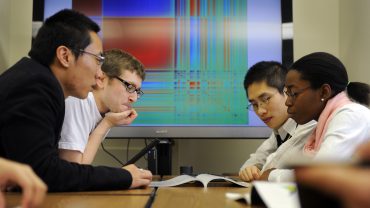
Graduate Certificate
Statistics Education
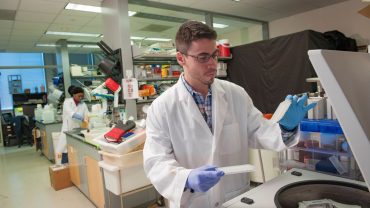
Applied Statistics and Data Management
- Academic Programs
- Graduate Programs
- Online Master's Degree in Applied Statistics
- Online Master’s Degree (MS) in Applied Statistics | Purdue University

- Job Outlook
- Virtual Events
Online Master of Science in Applied Statistics: Overview
Advance your career with a master’s degree in applied statistics.
Predictive analysis is a crucial organizational resource in the modern, data-driven market. For this reason, the demand for skilled statisticians is rising. According to the U.S. Bureau of Labor Statistics, there is a projected 35% job growth for statisticians through 2029.
Excel in this lucrative industry with a 100% online Master’s degree in Applied Statistics from Purdue. Purdue’s market-driven curriculum teaches students professional skills in probability, statistical theory, statistical methods, experimental design, and data management - preparing them for high-demand positions in statistics and data analysis.
Why a Master’s of Applied Statistics online at Purdue?
The Department of Statistics at Purdue University is one of the largest and most computationally modernized statistics programs in the United States. Our faculty conduct cutting-edge research in both theoretical and applied statistics, and our students use the latest computational tools to solve problems relevant to today’s world. Our graduates are equipped with the training and experience they need to obtain exciting jobs in industry, government, academic and non-profit institutions.
Our online master’s program makes a world-class statistics education accessible to working professionals. The 33 credit-hour Master of Science in Applied Statistics program can be completed in 24-30 months of consecutive, part-time enrollment. Students will learn advanced statistical skills that will make them more competitive in the job market while being able to maintain full-time careers, family obligations, and other commitments.
The online courses are taught by the same distinguished faculty that teach on-campus at Purdue. Online students will also take an innovative statistical consulting and collaboration course – a capstone-like experience that gives students the opportunity to work on real-world problems alongside experienced statistics faculty.
Get started with a Graduate Certificate in Applied Statistics
The Graduate Certificate in Applied Statistics is a 12 credit-hour program for those looking to improve their analytical abilities while gaining a greater knowledge of statistics. If you are accepted into the Master of Applied Statistics program, the credits you earn toward this certificate may be applied to the master's program.
Request More Information
Contact information.
Email: [email protected]
Phone: 765-496-0990
Purdue Department of Statistics, 150 N. University St, West Lafayette, IN 47907
Phone: (765) 494-6030, Fax: (765) 494-0558
© 2024 Purdue University | An equal access/equal opportunity university | Copyright Complaints | DOE Degree Scorecards
Trouble with this page? Accessibility issues ? Please contact the College of Science .
Statistics & Data Science
Dietrich college of humanities and social sciences, statistics/machine learning joint ph.d. degree, this program differs from the standard statistics ph.d. program in its emphasis on machine learning and computer science. students in this track will be involved in courses and research from both the departments of statistics and machine learning..
During the first year, students will normally be situated in and supported by the Department of Statistics. During later years, students will be located in the Department of their primary advisor.
Students will be granted the joint degree if they meet TWO sets of program requirements corresponding to the TWO departments, namely the ML Ph.D. Requirements and the Statistics Ph.D. Requirements, as we present next.
Statistics Joint Program Requirements
Students in this program are subject to all of the core Ph.D. requirements , except that the Data Analysis Exam is not required. (The Data Analysis Exam is required, however, in order to receive the M.S. in Statistics .)
Students in this program are required to complete the Advanced Data Analysis (ADA) project to the same standards as regular Statistics Ph.D. students. Namely, they are required to work on a substantive, real data project with a domain expert as outside advisor. A faculty member from the Department of Statistics must play an oversight role in the project, if not as the primary advisor. This project will satisfy the ML Data Analysis Project (DAP), speaking skills, and writing requirements, provided that an ML faculty member is an advisor.
The student must be advised by a faculty from the home department along with a Core Faculty member from the joint department as a co-mentor. Joint Statistics-MLD faculty cannot serve both roles. Both faculty must be identified at the time of admission to the joint program.
The thesis proposal and defense must be announced to the MLD community.
For questions, please send email to: [email protected] (link sends e-mail)
ML Joint Program Requirements
How to apply.
Students interested in this joint Ph.D. degree should apply to the Ph.D. program that best aligns with their research interests (Ph.D. in Statistics or Ph.D. in Machine Learning).
Machine Learning Ph.D. Online Application
Statistics Ph.D. Online Application

- Youth Program
- Wharton Online
PhD Program
Wharton’s PhD program in Statistics provides the foundational education that allows students to engage both cutting-edge theory and applied problems. These include problems from a wide variety of fields within Wharton, such as finance, marketing, and public policy, as well as fields across the rest of the University such as biostatistics within the Medical School and computer science within the Engineering School.
Major areas of departmental research include: analysis of observational studies; Bayesian inference, bioinformatics; decision theory; game theory; high dimensional inference; information theory; machine learning; model selection; nonparametric function estimation; and time series analysis.
Students typically have a strong undergraduate background in mathematics. Knowledge of linear algebra and advanced calculus is required, and experience with real analysis is helpful. Although some exposure to undergraduate probability and statistics is expected, skills in mathematics and computer science are more important. Graduates of the department typically take positions in academia, government, financial services, and bio-pharmaceutical industries.
Apply online here .
Department of Statistics and Data Science
The Wharton School, University of Pennsylvania Academic Research Building 265 South 37th Street, 3rd & 4th Floors Philadelphia, PA 19104-1686
Phone: (215) 898-8222
- Contact Information
- Course Descriptions
- Course Schedule
- Doctoral Inside: Resources for Current PhD Students
- Penn Career Services
- Apply to Wharton
- Financial Aid
- Home »
- Search »
Online Postgraduate Courses in Statistics - 38 Courses
- Refine your search:
- Applied statistics
- Mathematical statistics
University of Aberdeen School of Medicine, Medical Sciences and Nutrition

- Health Data Science Master of Science - MSc (PG)

University of Aberdeen School of Natural and Computing Sciences

- Data Science (Online) MSc
Birkbeck, University of London Birkbeck Business School

- Economics Graduate Diploma - Grad Dip
Birkbeck, University of London School of Natural Sciences
- Bioinformatics MSc Master of Research - MRes
University College Dublin UCD School of Mathematics and Statistics

- Data Analytics MSc Professional Diploma
LIBF Artificial Intelligence

- Artificial Intelligence Master of Science - MSc (PG)
LIBF Business
- Business Intelligence Master of Science - MSc (PG)
LIBF Computer Science
- Computer Science Master of Science - MSc (PG)
LIBF Data Science
- Data Science Master of Science - MSc (PG)
Liverpool School of Tropical Medicine International Health Group

- Global Health MSc Postgraduate Certificate - PgCert Postgraduate Diploma - PgDip
University of Strathclyde Faculty of Science

- Applied Statistics (online) MSc
- Applied Statistics in Health Sciences (Online) MSc
- Applied Statistics with Data Science (online) MSc
- Applied Statistics in Finance (online) MSc
University of the Highlands and Islands (UHI) Humanities, Education and Gaelic
- Research Methods Postgraduate Certificate - PgCert
University of Huddersfield Department of Computer Science (CEI)
- Data Analytics MSc
- Data Analytics (Distance Learning) MSc
University of Leeds Digital Education Service
- Data Science (Statistics) MSc
University of Sheffield Mathematics and Statistics
- Statistics MSc Postgraduate Certificate - PgCert
- Statistics with Financial Mathematics MSc
Search for statistics by...
- Attendance :
- All attendance types
- Online / distance learning
- All qualifications
- Masters/Diploma/PG Cert
- All countries
- Europe (any country)
- EU (any country)
- Republic of Ireland
- Europe non-EU (any country)
- United Kingdom
- UK Location :
- All regions
- Yorkshire and the Humber

Exclusive bursaries Open day alerts Funding advice Application tips Latest PG news
Complete Our Destination Survey

Take 2 minutes to complete our Destination Survey for the chance to win a Postgrad Study Bursary worth £2,000.
All we need to know is:
- Your university
- Your PG course

Alternatively, use our A–Z index
Attend an open day
Discover more about postgraduate research
PhD Statistics / Overview
Year of entry: 2024
- View full page
The standard academic entry requirement for this PhD is an upper second-class (2:1) honours degree in a discipline directly relevant to the PhD (or international equivalent) OR any upper-second class (2:1) honours degree and a Master’s degree at merit in a discipline directly relevant to the PhD (or international equivalent).
Other combinations of qualifications and research or work experience may also be considered. Please contact the admissions team to check.
Full entry requirements
Apply online
In your application you’ll need to include:
- The name of this programme
- Your research project title (i.e. the advertised project name or proposed project name) or area of research
- Your proposed supervisor’s name
- If you already have funding or you wish to be considered for any of the available funding
- A supporting statement (see 'Advice to Applicants for what to include)
- Details of your previous university level study
- Names and contact details of your two referees.
Programme options
| Full-time | Part-time | Full-time distance learning | Part-time distance learning | |
|---|---|---|---|---|
| PhD | Y | Y | N | N |
Programme description
The Department of Mathematics has an outstanding research reputation and a thriving community of PhD students.
Opportunities for PhD research are available in a range of Probability and Statistics topics and Mathemathics research areas . For more information, please see advice on choosing a project or find out more about specific projects . Please contact the relevant individual members of staff for information about a specific project, or get in touch with the Postgraduate Admissions Tutor .
For entry in the academic year beginning September 2024, the tuition fees are as follows:
- PhD (full-time) UK students (per annum): Band A £4,786; Band B £7,000; Band C £10,000; Band D £14,500; Band E £24,500 International, including EU, students (per annum): Band A £28,000; Band B £30,000; Band C £35,500; Band D £43,000; Band E £57,000
- PhD (part-time) UK students (per annum): Band A £2393; Band B £3,500; Band C £5,000; Band D £7,250; Band E 12,250 International, including EU, students (per annum): Band A £14,000; Band B £15,000; Band C £17,750; Band D £21,500; Band E £28,500
Further information for EU students can be found on our dedicated EU page.
The programme fee will vary depending on the cost of running the project. Fees quoted are fully inclusive and, therefore, you will not be required to pay any additional bench fees or administration costs.
All fees for entry will be subject to yearly review and incremental rises per annum are also likely over the duration of the course for Home students (fees are typically fixed for International students, for the course duration at the year of entry). For general fees information please visit the postgraduate fees page .
Always contact the Admissions team if you are unsure which fees apply to your project.
Scholarships/sponsorships
There are a range of scholarships, studentships and awards at university, faculty and department level to support both UK and overseas postgraduate researchers.
To be considered for many of our scholarships, you’ll need to be nominated by your proposed supervisor. Therefore, we’d highly recommend you discuss potential sources of funding with your supervisor first, so they can advise on your suitability and make sure you meet nomination deadlines.
For more information about our scholarships, visit our funding page or use our funding database to search for scholarships, studentships and awards you may be eligible for.
Contact details
Our internationally-renowned expertise across the School of Natural Sciences informs research led teaching with strong collaboration across disciplines, unlocking new and exciting fields and translating science into reality. Our multidisciplinary learning and research activities advance the boundaries of science for the wider benefit of society, inspiring students to promote positive change through educating future leaders in the true fundamentals of science. Find out more about Science and Engineering at Manchester .
Programmes in related subject areas
Use the links below to view lists of programmes in related subject areas.
- Mathematics
Regulated by the Office for Students
The University of Manchester is regulated by the Office for Students (OfS). The OfS aims to help students succeed in Higher Education by ensuring they receive excellent information and guidance, get high quality education that prepares them for the future and by protecting their interests. More information can be found at the OfS website .
You can find regulations and policies relating to student life at The University of Manchester, including our Degree Regulations and Complaints Procedure, on our regulations website .
We use cookies on reading.ac.uk to improve your experience, monitor site performance and tailor content to you
Read our cookie policy to find out how to manage your cookie settings
This site may not work correctly on Internet Explorer. We recommend switching to a different browser for a better experience.
PhD by Distance

Our PhD by Distance programme allows you to benefit from our world-class support and the expertise of a Reading-based supervisor, while conducting your research in a location that suits your circumstances.
The programme is available to candidates who need to study for most of their registration period at another site, whether in the UK, or worldwide. Acceptance for PhD by Distance is subject to the approval of the supervisors and the relevant school or department.
There are several reasons why you may wish to base yourself away from the University of Reading while undertaking your PhD:
- You have an extensive fieldwork element to your research
- You have responsibilities (e.g. caring or employment) that prevent you from attending on campus
- You are already based and/or employed in an environment that is relevant and conducive to their research
- You do not reside within travelling distance of the University
- You are based in a UK research organisation/institution with a collaborative agreement with the University of Reading in place
What the programme offers
On the PhD by Distance programme, you will benefit from:
- the opportunity to study on either a part-time (4-6 years duration) or full-time basis (3-4 years duration)
- supervision from one or more leading University of Reading academics, working at the forefront of their field
- access to a range of high-quality training, delivered on campus or online (see section below on Training)
- access to extensive online Library resources
- a PhD qualification which is delivered and examined at the same high academic standard as a campus-based PhD and a standard PhD degree certificate which does not state the mode of study on it.
Training for PhD by Distance students
The doctoral and researcher college provides a suite of generic researcher training open to all doctoral researchers at reading; this complements subject-specific training available via schools. the specific content of the programme changes from year to year but broadly includes the following: .
- Live online training (available off-campus) – A selection of our training sessions in the Reading Researcher Development Programme (RRDP) are delivered live online each year. UK time zone applies
- Recorded tutorials (available off-campus) – A small but growing selection of recorded tutorials on key topics such as managing data, academic English and research funding
- Face-to-face training (available on campus only) - Other RRDP training sessions and selected longer programmes are offered face-to-face only. Students registered By Distance have access to face-to-face training when physically present on campus.
By Distance study entails reduced access to training opportunities and on-campus experience. By Distance candidates are encouraged to discuss and mutually agree overall training plans with their supervisor and seek supplementary training external to Reading (e.g. via an employer or nearby institution) as appropriate.
Induction and physical attendance
A University-wide induction event is held by the Doctoral and Researcher College near the start of each term for all new doctoral researchers. PhD by Distance students studying at Reading in the first term are expected to attend. Where it is not possible for PhD by Distance students to attend in person (i.e. they are not on campus), a recording of the induction will be made available on the virtual learning environment.
Students registered By Distance will benefit from being physically present on campus for periods of time, for instance to attend induction and selected training, to meet their supervisor and peers, and to attend at key points such as Confirmation of Registration. It is strongly recommended that the first month of their programme be spent on campus.
Eligibility
You must meet the following criteria:
- Satisfy the academic and English language entry requirements for PhD study
- The candidate has a research project which can be undertaken successfully by distance; regular access to campus should not be essential for successful completion of the research
- The candidate must be able to demonstrate that they have the time to undertake a PhD on the selected mode (full-time or part-time). Part-time doctoral study at Reading typically equates to between 50% and 60% of full-time
- The candidate has independent access to the resources needed to successfully complete their research; this will vary between candidates and projects but may include access to archives, facilities, data collection, digital infrastructure or space in their off-campus location
- The candidate is well motivated to work alone; they understand that By Distance registration is not an online learning programme and has reduced access to campus training
- The candidate and School/Department have discussed the suitability of their research project and personal circumstances for study by distance
- The candidate, where appropriate, has access to support from a local supervisor or mentor with experience in the academic field and also of supporting students or equivalent researchers. Advisors/mentors may be appointed to provide a regular point of contact, and are normally in a position to act as an ‘advocate’ and provide pastoral care if needed.
- Will study at least two-thirds of your minimum registration period off campus
If you are intending to study in the Henley Business School, then please check with the relevant Department within the Business School about whether PhD by Distance is available before you apply.
A PhD by Distance is not suitable for all candidates. In offering a PhD By Distance programme specific consideration is given to the suitability of the research project, and whether it can be completed successfully without regular access to campus. Further consideration is given to areas of supervision, support, transferable and subject-specific skills training, research environment , progression milestones and the examination process in order to ensure off campus research students receive a comparable (although, not similar) experience to on campus students registered on ‘standard’ PhD programmes.
Fees for PhD by Distance programmes can be found on the fees webpage
- How to apply
Before starting your application, you are strongly advised to navigate to the PhD webpages of your chosen school or department to read the specific guidance on how to apply, as the requirements can vary. Once you have read the guidance, you will need to make a formal application through the University's online application system , highlighting that you wish to study for a PhD by Distance (full or part-time). If you have questions about PhD by Distance in a specific school or department, then please contact the relevant School/Department PGR Administrator in the School PGR Support Team .
Immigration considerations for international students
PhD by Distance students must ensure that when visiting the University that they obtain the correct visa. The correct type of visa depends upon the period of time which a student intends to spend physically at the University.
PhD by Distance students can visit the University for up to six months within each academic year with a maximum of eighteen months in total for the duration of their programme. Students must discuss their intentions with the Doctoral Research Office (DRO) well in advance of any planned visit to the University. The DRO is well-placed to provide information on a range of immigration-related matters related to Postgraduate Research Programmes [email protected]
Examination
The normal expectation is that the viva of a PhD by Distance student will take place in Reading. Where this is not feasible, online examinations will be arranged.
Further information
Further information on PhD by Distance study can be found in the University's guidance on PhD by Distance .
Take the next step
- Get a prospectus
- Ask us a question
You are using an outdated browser. Please upgrade your browser to improve your experience.
- Online Studies
You are in a modal window. Press the escape key to exit.
- News & Events
- See programs
Common Searches
- Why is it called Johns Hopkins?
- What majors and minors are offered?
- Where can I find information about graduate programs?
- How much is tuition?
- What financial aid packages are available?
- How do I apply?
- How do I get to campus?
- Where can I find job listings?
- Where can I log in to myJHU?
- Where can I log in to SIS?
- University Leadership
- History & Mission
- Diversity & Inclusion
- Notable Alumni
- Hopkins in the Community
- Hopkins in D.C.
- Hopkins Around the World
- News from Johns Hopkins
- Undergraduate Studies
- Graduate Studies
- Part-Time & Non-Degree Programs
- Summer Programs
- Academic Calendars
- Advanced International Studies
- Applied Physics Laboratory
- Arts & Sciences
- Engineering
- Peabody Conservatory
- Public Health
- Undergraduate Admissions
- Graduate Admissions
- Plan a Visit
- Tuition & Costs
- Financial Aid
- Innovation & Incubation
- Bloomberg Distinguished Professors
- Undergraduate Research
- Our Campuses
- About Baltimore
- Housing & Dining
- Arts & Culture
- Health & Wellness
- Disability Services
- Calendar of Events
- Maps & Directions
- Contact the University
- Employment Opportunities
- Give to the University
- For Parents
- For News Media
- Office of the President
- Office of the Provost
- Gilman’s Inaugural Address
- Academic Support
- Study Abroad
- Nobel Prize winners
- Homewood Campus
- Emergency Contact Information
You don’t have to be on a Johns Hopkins campus to get the benefits of a Johns Hopkins education. We offer dozens of online courses and programs, some for credit, some for free through our partnership with Coursera.
More information about our online programs is available below

Krieger School of Arts & Sciences
More than 25 master’s and certificate programs are offered fully or partially online via the Krieger School’s Advanced Academic Programs division

Carey Business School
The Flexible MBA program provides a part-time business education for full-time professionals seeking to advance their careers; the business of health care graduate certificate is designed for leaders in health care and medicine

School of Advanced International Studies
Explore the world of international relations through innovative graduate courses and degree programs offered online.

School of Education
Doctoral, master’s, and certificate programs offered fully online, plus a selection of professional development courses

Whiting School of Engineering
More than 140 online courses are available via Johns Hopkins Engineering for Professionals, including programs in computer science, cybersecurity, environmental engineering, and information systems engineering

School of Medicine
The Department of the History of Medicine offers an online master’s and certificate in the History of Medicine, as well as individual courses for credit

School of Nursing
Online prerequisites for health professions—including anatomy, biostatistics, microbiology, and physiology—plus master’s programs and certificate options

Bloomberg School of Public Health
Offering online degree programs, courses, certificates, and training, plus an expanding portfolio of free online courses via OpenCourseWare, Coursera, and iTunes
Choose from more than 60 online classes offered through Coursera, a leading provider of massive open online courses, or MOOCs. Courses are free and open to anyone who is interested—you don’t have to be enrolled at Johns Hopkins. Topics include bioinformatics, data analysis, the science of patient safety, and caring for people with Alzheimer’s disease.
Continuing Medical Education
The Office of Continuing Medical Education at our School of Medicine offers educational activities—including online courses —designed to help doctors maintain, develop, and/or increase the knowledge and skills they need to best serve their patients, the public, and the profession.

- Johns Hopkins University
- Address Baltimore, Maryland
- Phone number 410-516-8000
- © 2024 Johns Hopkins University. All rights reserved.
- Schools & Divisions
- Admissions & Aid
- Research & Faculty
- Campus Life
- University Policies and Statements
- Privacy Statement
- Title IX Information and Resources
- Higher Education Act Disclosures
- Clery Disclosure
- Accessibility
| You might be using an unsupported or outdated browser. To get the best possible experience please use the latest version of Chrome, Firefox, Safari, or Microsoft Edge to view this website. |
2024 Online Learning Statistics

Expert Reviewed
Updated: Aug 23, 2024, 10:31am

Key Takeaways
- In 2022, about 10 million college students took at least one online class. 1
- Approximately 54% of college students took distance education courses in fall 2022, down from 75% during the height of the Covid-19 pandemic in fall 2020. 1 , 2
- Primarily online colleges enroll around 1.1 million students. 3
- Black students make up 23.3% of students at primarily online colleges, versus just 12.5% of all college students. 3
- Out-of-state tuition rates are significantly cheaper at fully online public colleges than other public colleges. 4
- The e-learning market is projected to grow by 20.5% from 2022–30. 5
The past decade has transformed online learning. In 2012, 75% of college students took all their classes in person, with 13.1% taking some online classes and 12.4% taking all of their classes online.6 Those numbers flipped dramatically during the Covid-19 pandemic, with just 26.6% of college students in 2020 reporting that they took no online classes.
What do remote learning statistics look like in the wake of the pandemic shutdowns? Instead of reverting to the pre-pandemic status quo, college students increasingly choose to take classes online. In 2022, more than half of college students enrolled in at least one online class. That adds up to around 10 million college students taking classes online.
Online learners are a diverse group made up of undergraduate and grad students; men and women; and learners of all races. The best online colleges meet high academic standards and hold institutional accreditation . And learning online can help degree seekers save money. Whether you’re considering an online degree or you’re curious about online higher education, these are the key statistics to understand online learning.
Why You Can Trust Forbes Advisor Education
Forbes Advisor’s education editors are committed to producing unbiased rankings and informative articles covering online colleges, tech bootcamps and career paths. Our ranking methodologies use data from the National Center for Education Statistics , education providers, and reputable educational and professional organizations. An advisory board of educators and other subject matter experts reviews and verifies our content to bring you trustworthy, up-to-date information. Advertisers do not influence our rankings or editorial content.
- 6,290 accredited, nonprofit colleges and universities analyzed nationwide
- 52 reputable tech bootcamp providers evaluated for our rankings
- All content is fact-checked and updated on an annual basis
- Rankings undergo five rounds of fact-checking
- Only 7.12% of all colleges, universities and bootcamp providers we consider are awarded
Online Learning by the Numbers
A growing number of college students take distance education courses. Digging into the data on online learning reveals a changing picture of higher education.
10 million: Approximate Number of College Students Enrolled in Distance Education Courses, Fall 2022 1
More than 10 million college students took at least one distance education class in the fall of 2022. Slightly less than half of those students took all of their courses online. Most of these online learners are undergraduates (8.4 million) attending four-year, public institutions (7.4 million).
75%: Approximate Percentage of College Students Enrolled in Distance Education Courses, Fall 2020 2
A significant majority of college students took classes online in fall 2020 due to the impact of the Covid-19 pandemic. While only 36.3% of college students took online classes in the fall of 2019, that percentage more than doubled the following year.
54%: Approximate Share of College Students Taking Distance Education Courses, Fall 2022 1
The percentage of students taking online courses dropped between fall 2020 and fall 2022 as Covid-19 campus closures ended and in-person learning resumed. However, substantially more students chose online courses in 2022 compared to pre-pandemic levels in 2019. The shifts in distance learning enrollment indicate that while many students initially enrolled in online courses because of the pandemic, distance learning numbers remained high long after lockdowns ended.
26%: Approximate Percentage of College Students Enrolled Exclusively in Distance Education Courses, Fall 2022 1
More than 1 in 4 college students chose a fully online format for their courses in Fall 2022. Around 63% of those fully online learners attended in-state colleges, while 33% attended schools located in other states. In-state college students at public universities often benefit from subsidized tuition rates.
54.4% vs. 53.5%: Respective Shares of Undergraduate vs. Graduate Students Taking Distance Education Courses, Fall 2022 1
Undergraduate and graduate students enroll in online courses at similar rates––54.4% and 53.5%, respectively.
Undergrads are more likely to choose a hybrid option, however. While 23.9% take exclusively online courses, 30.5% take both online and on-campus courses. At the graduate level, 38.7% enroll fully online, while 14.8% take classes in a hybrid format.
For-Profit Private Schools More Likely To Enroll Exclusively Online Than Nonprofit Private Schools, Fall 2022 1
- Private, for-profit colleges: 64.8% of all students enrolled exclusively online
- Private, nonprofit colleges: 26.5% of all students enrolled exclusively online
- Public colleges: 23.6% of all students enrolled exclusively online
Students at private, for-profit colleges are much more likely to take their classes in a fully online format than students attending private, nonprofit colleges and public colleges. While public colleges enroll the largest share of online learners, with 3.1 million of the 4.9 million fully online students, they enroll the smallest percentage of exclusively online students.
States With Highest Online College Enrollment Rates: New Hampshire, Arizona, West Virginia, Utah, Alaska 6
Some surprising states top the list of the states with the highest online college enrollment rates. States such as Alaska and West Virginia likely appear because of the challenges of accessing higher education in more remote areas. Alaska, for example, is home to only eight degree-granting postsecondary institutions. 7
The appearance of Utah, New Hampshire and Arizona point to another factor: The three largest online colleges by enrollment are located in those states, and most students at these colleges are enrolled exclusively online. 8
- Western Governors University in Utah enrolls more than 150,000 students, all of whom are distance learners.
- Southern New Hampshire University enrolls around 145,500 learners, of whom 138,700 take exclusively distance courses.
- Arizona’s Grand Canyon University educates approximately 103,100 students, and 79,900 are distance learners.
Online Schools vs. Traditional College
Only a small fraction of colleges primarily enroll distance learners. Part-time students are more likely than their full-time peers to choose primarily online colleges.
3.7%: Share of Higher Education Institutions Considered Primarily Online Colleges, Fall 2022 3
Very few colleges meet the definition of a “primarily online college,” according to the NCES. The term only applies to colleges where 90% or more of students enroll online. Instead, many traditional colleges offer both online and on-campus courses.
6%: Approximate Percentage of College Students Attending Primarily Online Schools, Fall 2022 3
While more than half of college students now take online classes, only a small fraction attend primarily online colleges. As of Fall 2022, just 6% of all students attended one of these schools.
1.1 Million: Approximate Number of Students Enrolled at Primarily Online Colleges, Fall 2022 3
Over 1 million students attend primarily online colleges. Part-time students are more likely to enroll at one of these institutions than full-time students.
At the undergraduate level, 7% of part-time students attend primarily online schools, compared with 4.4% of full-time students. Similarly, 10.7% of part-time graduate students attend primarily online colleges, compared with 8.1% of full-time graduate students.
8.5 Million: Approximate Number of Students Not Enrolled in Any Distance Education Courses, Fall 2022 1
While more than 10 million students take at least some distance education courses, 8.5 million do not take any online courses.
Online learning data indicates that private, nonprofit institutions enroll the highest percentage of fully in-person students, with 56.2% of learners not taking any online courses. By contrast, 45% of public school students and 33.3% of private, for-profit learners do not participate in online learning. 6
Online Learning Through the Years
While the Covid-19 pandemic had a major impact on remote learning, the last decade has brought many other significant changes as well.
In 2012, 74.5% of college students took no online courses. That number declined to 63.7% in 2019. At the same time, the percentage of students exclusively enrolled in online courses grew. In 2012, 12.4% of college students enrolled fully online, while 13.1% took at least one online class. By 2019, the share of fully and partially online learners grew to 17.2% and 19.1%, respectively.
The pandemic upended remote learning, with the share of students not taking online classes plummeting to 26.6%. While that number rebounded in the following years, reaching 41.4% in 2021 and 46.7% in 2022, most college students are still not enrolled exclusively online.
46.7%: Share of College Students Enrolled Exclusively in Online Courses, Fall 2020 2
As the Covid-19 pandemic closed schools, many switched to a remote learning model. From 2019 to 2022, the share of fully online learners more than doubled. However, when schools closed their campuses, most students did not have a choice in how they attended classes, and a significant number of degree seekers dropped out of college during this period.
28%: Share of College Students Enrolled in Some, But Not All, Online Courses in Fall 2020 2
Nearly three in 10 college students enrolled in a hybrid format in fall 2020. Combined, distance learners made up around 75% of all college students at that time, with only 25% taking exclusively in-person classes.
21.3%: Decline in Distance Learning Enrollment Between Fall 2020 and Fall 2021 2,1
The percent of students taking online classes dropped significantly between fall 2020 and fall 2021 as many campuses reopened following the early pandemic lockdowns. During the same period, total college enrollment declined 2%, with public colleges losing more students than private colleges.
9.9%: Decline in Distance Learning Enrollment Between Fall 2021 and Fall 2022 1
After the sharp decline from 2020 to 2021, distance learning enrollment dipped by nearly 10% from 2021 to 2022. During that period, total college enrollment dropped by around 0.5%.
20.5%: Projected Annual Growth of e-Learning Market From 2022–30 5
Overall, the e-learning market brought in an estimated $214.26 billion in 2021. By 2030, the e-learning industry will top $1 trillion in revenue. Still, higher education makes up only part of the total e-learning market.
Online Degrees
Online degrees make up a significant share of all degrees, with nearly 280,000 graduates earning their degrees at primarily online colleges in 2022. 3 This is about 6.8% of all degrees earned in the U.S that year. However, these figures undercount the total number of online degrees, because they do not account for online degrees awarded by colleges that also offer in-person degrees.
279,162: Number of Degrees Conferred by Primarily Online Colleges in the 2021–22 School Year 3
- 46,753 associate degrees
- 132,274 bachelor’s degrees
- 94,159 master’s degrees
- 5,976 doctoral degrees
A bachelor’s degree is the most common degree to earn online, representing 47.4% of all online degrees awarded by primarily online colleges in 2021–22. More than 94,000 graduate students also earned master’s degrees online, making up 33.7% of all online degrees conferred. Associate and doctoral degrees make up smaller fractions of online degrees.
6.8%: Percentage of All Degrees Conferred by Primarily Online Colleges, 2021–22 3
- 4.6% of all associate degrees
- 6.6% of all bachelor’s degrees
- 10.7% of all master’s degrees
- 2.9% of all doctoral degrees
Primarily online colleges awarded less than 7% of all degrees awarded in 2022; they confer master’s degrees at a comparatively higher rate. However, many traditional colleges also award online degrees, indicating that online degrees make up a larger share of total degrees than the 6.8% awarded by primarily online colleges.
66%: Percentage of Degrees Conferred From Primarily Online Colleges to Female-Identifying Students, 2021–22 3
Women make up the majority of all college students and an even larger share of graduates from primarily online colleges. At the bachelor’s level, women made up 58.5% of the class of 2022 and 63.6% of primarily online bachelor’s graduates that year.
20.9%: Graduation Rate Within Six Years Among Full-Time, Bachelor’s-Seeking Students at Primarily Online Colleges, 2021–22 3
At the bachelor’s level, primarily online colleges report relatively low graduation rates compared to other types of colleges. While just over 20% of undergraduate students enrolled at primarily online colleges earn their bachelor’s degrees within six years, the graduation rate for similar students at other institutions was 64.6%.
However, online students at two-year schools graduate at higher rates. Primarily online, two-year institutions saw a 45.6% graduation rate as of 2019, compared to 34.1% at all two-year institutions.
Online Learning by Race 3
Overall, around 6% of college students attend primarily online colleges. However, Pacific Islander, Black and Native American students enroll in these institutions at higher rates.
14% of All Pacific Islander College Students Attend Primarily Online Colleges
A relatively large fraction of Pacific Islanders enrolls at primarily online schools. As for students from other racial and ethnic groups:
- 11.3% of Black college students attend online colleges
- 8.8% of American Indian/Alaska Native college students attend online colleges
- 6.4% of white college students attend online colleges
- 5.8% of college students who identify as two or more races attend online colleges
- 4.3% of Hispanic college students attend online colleges
- 3.1% of Asian college students attend online colleges
College Enrollment by Race: Online Colleges vs. Traditional Colleges 3
While white students attend online and traditional colleges at approximately the same rate, Black students make up a larger share of online students. In contrast, Hispanic and Asian learners make up more of the traditional college student body.
Online Learning Costs, 2022–23 4
Tuition rates differ between online and in-person colleges. In addition, the institution type and residency status also play a major role in the cost of college. While online learning can cost less than in-person learning, that is not always the case. The following tuition rates compare fully online colleges against the median for all colleges.
$8,254 vs. $5,941: Median In-State Tuition and Fees at Public Online Colleges vs. All Public Colleges
Public online colleges charge a higher median tuition rate for in-state learners than all public colleges. That means degree seekers may save money by choosing an in-state, public college over a fully online school. Keep in mind that many public colleges offer both in-person and online learning.
$8,400 vs. $10,760: Median Out-of-State Tuition and Fees at Public Online Colleges vs. All Public Colleges
Out-of-state students attending public colleges pay significantly higher tuition rates than their in-state counterparts. However, choosing an online learning format can save out-of-state learners money. Overall, out-of-state learners pay lower tuition rates at online public colleges compared to the median out-of-state tuition cost at all public colleges.
$10,002 vs. $27,730: Median Tuition and Fees at Private, Nonprofit Online Colleges vs. All Private, Nonprofit Colleges
Online learners save the most when choosing a private, nonprofit college. While the median cost of tuition and fees at primarily online colleges in this category is around $10,000, the overall cost of tuition and fees reaches nearly $28,000, indicating that degree seekers interested in private, nonprofit institutions can cut costs with an online format.
- National Center for Education Statistics (NCES), Number and percentage of students enrolled in degree-granting postsecondary institutions, by distance education participation, location of student, level of enrollment, and control and level of institution: Fall 2021 and fall 2022
- NCES, Number and percentage of students enrolled in degree-granting postsecondary institutions, by distance education participation, location of student, level of enrollment, and control and level of institution: Fall 2020 and fall 2021
- NCES, Selected statistics for degree-granting postsecondary institutions that primarily offer online programs, by control of institution and selected characteristics: Fall 2022 and academic year 2021–22
- Integrated Postsecondary Education System (IPEDS), Statistical Tables
- Polaris Market Research
- NCES Trend Generator, Percent of students enrolled in distance education courses by distance education status of student
- NCES, Degree-granting postsecondary institutions, by control and classification of institution and state or jurisdiction: Academic year 2022-23
- NCES, Total enrollment and enrollment in exclusively distance education courses of the 120 largest degree-granting postsecondary institutions, by selected characteristics and institution: Fall 2021
Frequently Asked Questions (FAQs) About Online Learning
What is online learning.
Online learning refers to a distance education model in which learners complete course requirements in a virtual environment. Online students may attend live lectures, connect on discussion boards or watch recorded content.
What is the best online learning platform?
The most popular online learning platforms include Coursera, Canvas, Blackboard and Moodle. Colleges often use Learning Management Systems to deliver online courses.
How can I learn online?
You can learn online by enrolling in online courses offered by colleges or learning organizations. For example, many accredited colleges offer online classes and degrees.
Why is e-learning effective?
E-learning can be effective for many students because it offers a flexible, accessible environment to learn. Online learning can also be more cost-effective for students.
- Ranking The Most Affordable States For College Students
- How To Apply For College
- Should You Attend Graduate School Online?
- Choosing A Major: How To Find What Major Is Right For You
- What Accreditation Should A College Have?
- Do You Need The SAT For College Admission?
- How To Get A Free Laptop For College
- How To Transfer Universities
- Online Checklist For Students
- ACT Vs. SAT
- Are Community Colleges Free?
- Get Accepted: What Is The Average SAT Score Needed For College Admission?
- Where Can You Take CPA Courses Online?
- What’s The Difference Between A College And A University?
- The Best Ways To Learn A New Language While In College
- Is College Worth It?
- Online Dual-Degree Programs
- Can International Students Attend Online College In The U.S.?
- Online Jobs For College Students
- Preparing For Senior Year Of High School
- Weighted Vs. Unweighted GPA
- What Are AP Classes?
- What Is A Double Major?
- What Is A Good GPA In College, And Does It Matter?
- What Is A College Minor?

Best Online Colleges In Ohio Of 2024
Best Online Colleges In Oklahoma Of 2024

Best Online Colleges In Tennessee Of 2024
Best Online Colleges In Kentucky Of 2024
Best Online Colleges In Michigan Of 2024
Best Online Colleges In New Mexico Of 2024
Genevieve Carlton holds a Ph.D. in history from Northwestern University and earned tenure at the University of Louisville. Drawing on over 15 years of experience in higher education, Genevieve provides practical, research-based advice on college degrees, career training and other higher education topics.
With five years of experience as a writer and editor in the higher education and career development space, Ilana has a passion for creating accessible, relevant content that demystifies the higher-ed landscape for traditional and nontraditional learners alike. Prior to joining Forbes Advisor's education team, Ilana wrote and edited for websites such as BestColleges.com and AffordableCollegesOnline.org.

IMAGES
COMMENTS
Northcentral University. Located in Minneapolis, Minnesota, North Central University has a robust online Ph.D. in data science program with a specialization in Statistics. You will learn advanced statistical analysis and explore research methodologies. The estimated time of completing the program is 40 months.
Graduate students at nonprofit private universities paid an average of $20,408 per year in 2022-23, according to the National Center for Education Statistics. Over the course of a typical three ...
With a history of over 250 years of academic excellence and 87 Nobel Prize Winners, graduate students in the Statistics Department can expect to acquire a degree of high academic standing. The Ph.D. in Statistics at Columbia is designed to train students in theoretical statistics, applied statistics, and probability.
Statistics and Data Science. Wharton's PhD program in Statistics and Data Science provides the foundational education that allows students to engage both cutting-edge theory and applied problems. These include theoretical research in mathematical statistics as well as interdisciplinary research in the social sciences, biology and computer ...
With the Statistics Graduate Program, you will gain an advanced skill set that can be applied to nearly all branches of science and technology. Statistical methods are used to analyze experiment results, test significance, and display results accordingly. Statistics can also be vital to making informed business decisions, particularly in times of uncertainty, by helping forecast seasonal ...
There are few, if any, available online statistics programs at the Ph.D. level. You can, however, take some prerequisite courses online. Some of the graduate coursework may be available online, but most Ph.D. programs require on-campus attendance. One reason for this is that many programs require doctoral candidates to teach or perform research.
PhD Program Overview. The PhD program prepares students for research careers in probability and statistics in academia and industry. Students admitted to the PhD program earn the MA and MPhil along the way. The first year of the program is spent on foundational courses in theoretical statistics, applied statistics, and probability.
The Statistics and Data Science Master's degree programs are intended as a terminal degree and do not lead to the doctoral program in Statistics. Recommended preparatory courses include advanced undergraduate level courses in linear algebra, statistics/probability and proficiency in programming. This is not an online program.
The Ph.D. program in statistics prepares students for a career pursuing research in either academia or industry. The program provides rigorous classroom training in the theory, methodology, and application of statistics, and provides the opportunity to work with faculty on advanced research topics over a wide range of theory and application areas.
Online Master of Science in Applied Statistics (MS) The median annual salary for mathematicians and statisticians is $104,860 according to the US Bureau of Labor Statistics (2023). And the job outlook for 2022-2032 is 30% growth, which is much faster than average (US BLS, 2023).
Program Contact Information. If you have questions related to admission, please click here to request information and an admission specialist will reach out to you directly. For questions regarding faculty or courses, please use the contact information below. [email protected]. 480/965-3951. A unit of.
The Graduate Certificate Program in Statistics and Machine Learning is designed to formalize the training of students who contribute to or make use of statistics and machine learning as a significant part of their degree program.In addition, it serves to recognize the accomplishments of graduate students across the University who acquire additional training in statistics and machine learning ...
Click "ENROLL NOW" to visit Coursera and get more information on course details and enrollment. Stanford's "Introduction to Statistics" teaches you statistical thinking concepts that are essential for learning from data and communicating insights. By the end of the course, you will be able to perform exploratory data analysis, understand ...
The Department of Statistics offers the 12-credit online Graduate Certificate in Statistics Education. The program is designed to provide convenient online access to the statistical training that is oftentimes required for career advancement. The application process is very simple, and a certificate will be earned by successful completion of ...
Graduate Certificate. Statistics Education . Graduate Certificate. Applied Statistics and Data Management . Online and Distance Education Home. Campus Box 7113 Raleigh, NC 27695-7555. 919.515.9030 1.866.GO.STATE (467.8283) Accreditation
Our online master's program makes a world-class statistics education accessible to working professionals. The 33 credit-hour Master of Science in Applied Statistics program can be completed in 24-30 months of consecutive, part-time enrollment. Students will learn advanced statistical skills that will make them more competitive in the job ...
For questions, please send email to: [email protected] (link sends e-mail) ML Joint Program Requirements ... Machine Learning Ph.D. Online Application. Statistics Ph.D. Online Application. Statistics & Data Science Dietrich College of Humanities and Social Sciences Carnegie Mellon University 5000 Forbes Avenue Pittsburgh, ...
PhD Program. Wharton's PhD program in Statistics provides the foundational education that allows students to engage both cutting-edge theory and applied problems. These include problems from a wide variety of fields within Wharton, such as finance, marketing, and public policy, as well as fields across the rest of the University such as ...
All regions. London. North West. Scotland. Yorkshire and the Humber. Study from anywhere, anytime with Online Postgraduate Statistics programs. Search courses and apply now.
Fees. For entry in the academic year beginning September 2024, the tuition fees are as follows: PhD (full-time) UK students (per annum): Band A £4,786; Band B £7,000; Band C £10,000; Band D £14,500; Band E £24,500. International, including EU, students (per annum): Band A £28,000; Band B £30,000; Band C £35,500; Band D £43,000; Band E ...
On the PhD by Distance programme, you will benefit from: the opportunity to study on either a part-time (4-6 years duration) or full-time basis (3-4 years duration) supervision from one or more leading University of Reading academics, working at the forefront of their field. access to a range of high-quality training, delivered on campus or ...
Choose from more than 60 online classes offered through Coursera, a leading provider of massive open online courses, or MOOCs. Courses are free and open to anyone who is interested—you don't have to be enrolled at Johns Hopkins. Topics include bioinformatics, data analysis, the science of patient safety, and caring for people with Alzheimer ...
In 2012, 12.4% of college students enrolled fully online, while 13.1% took at least one online class. By 2019, the share of fully and partially online learners grew to 17.2% and 19.1% ...